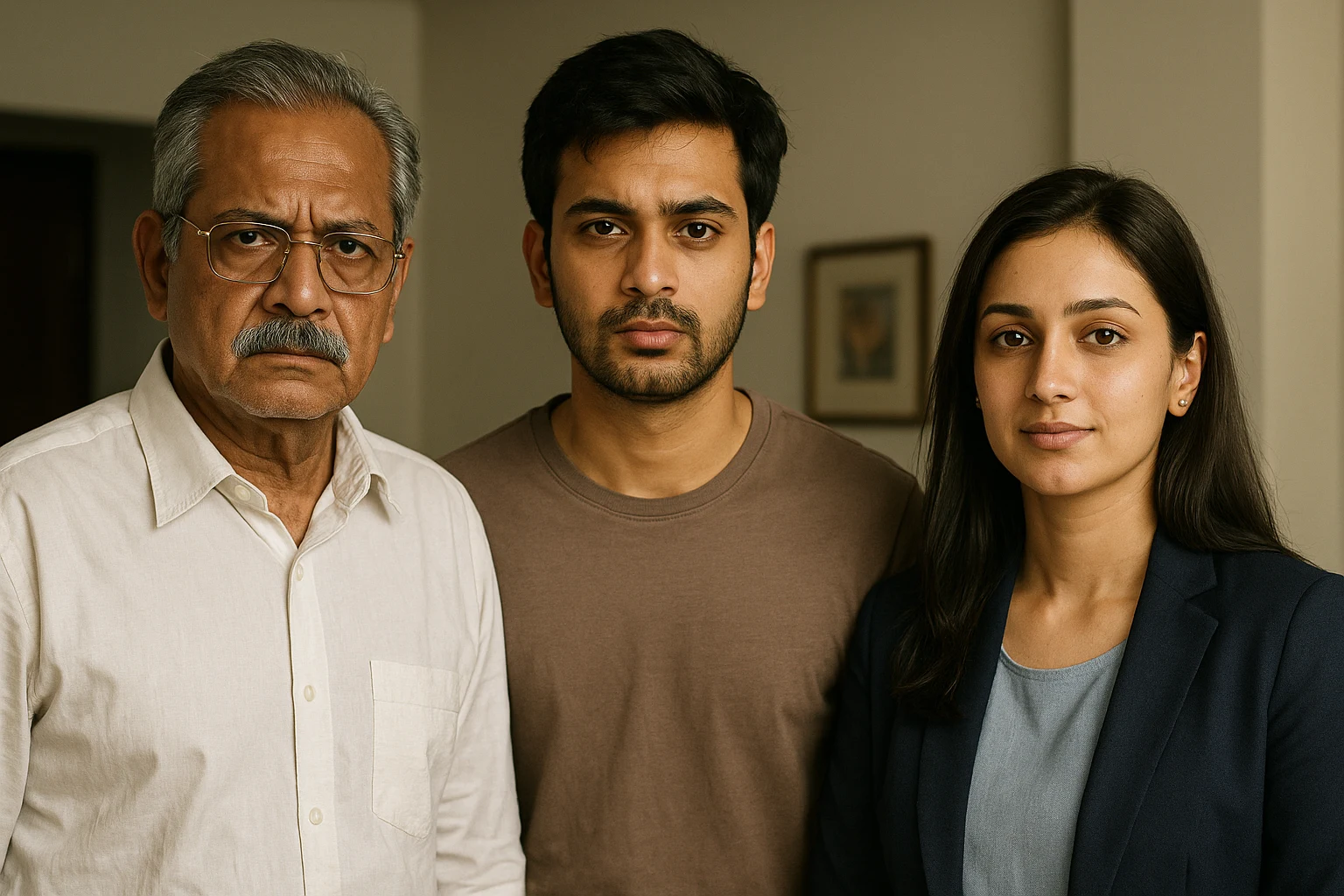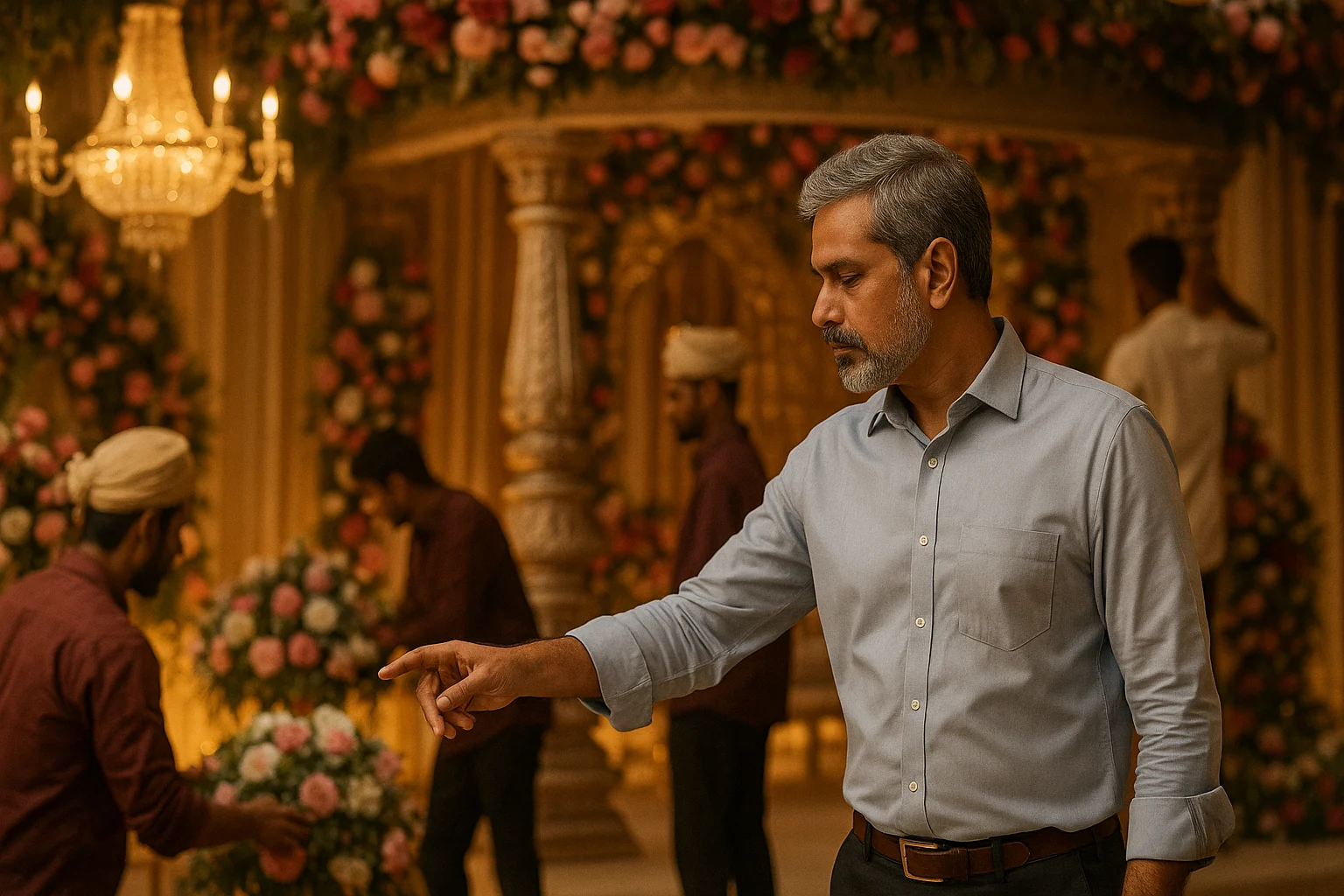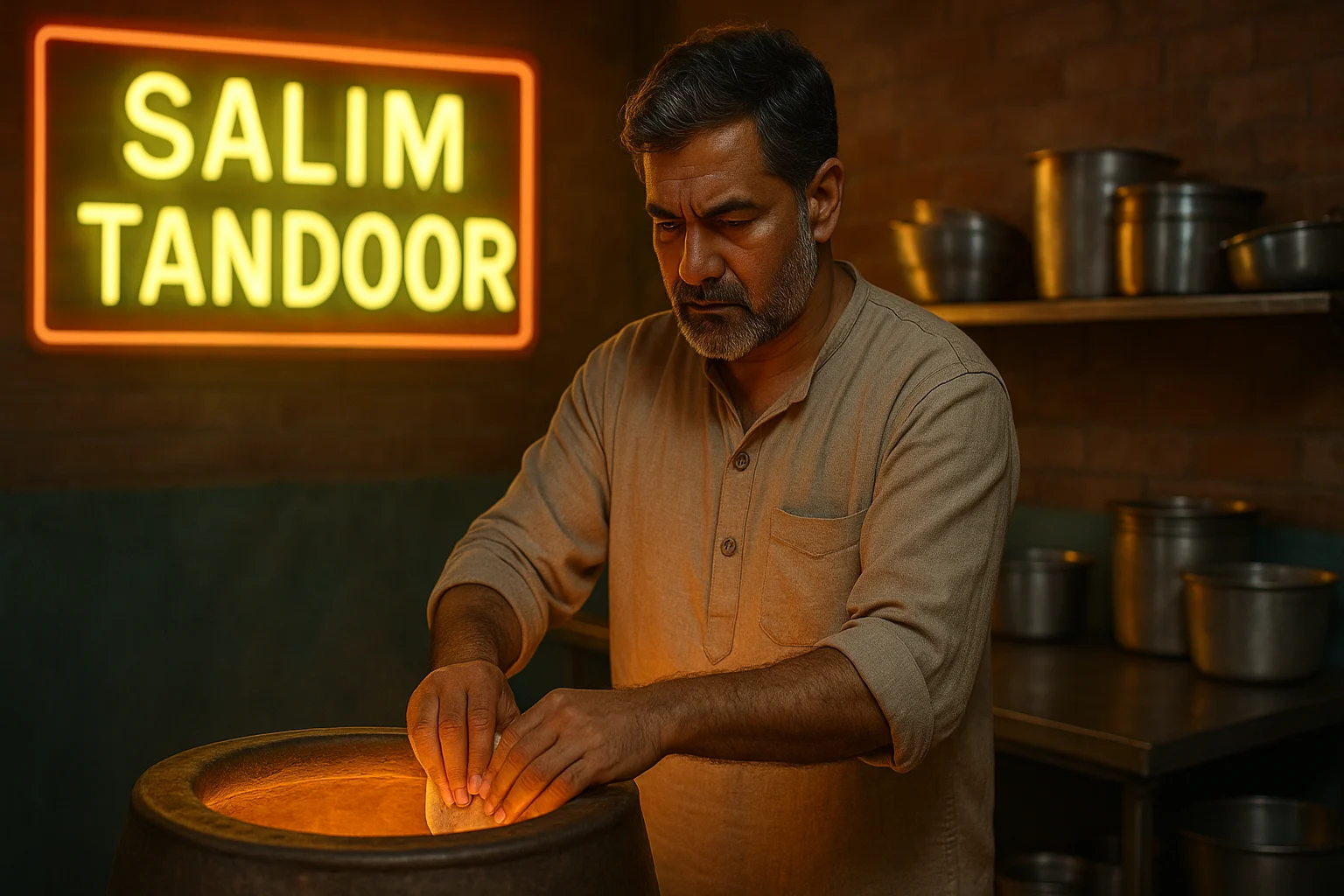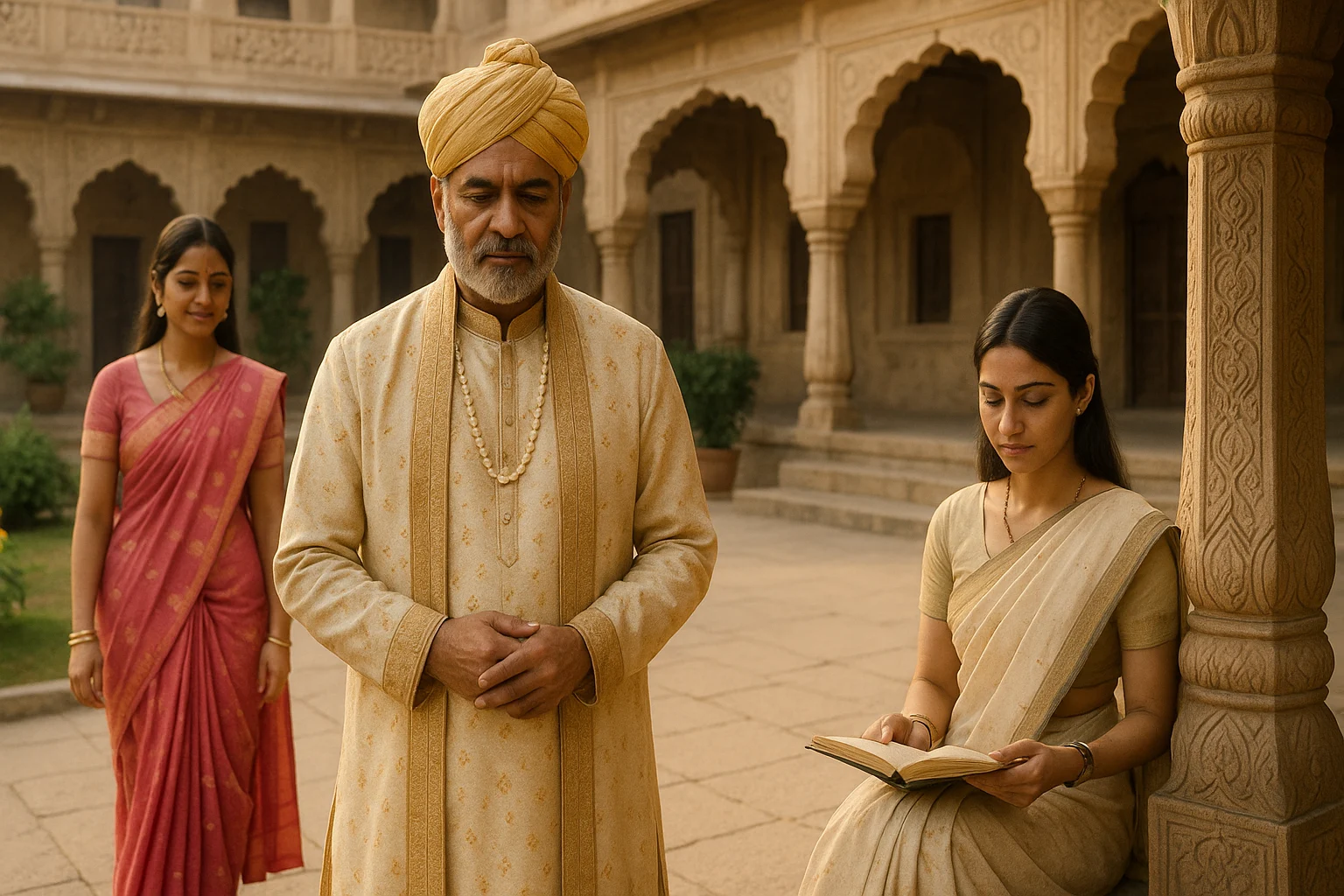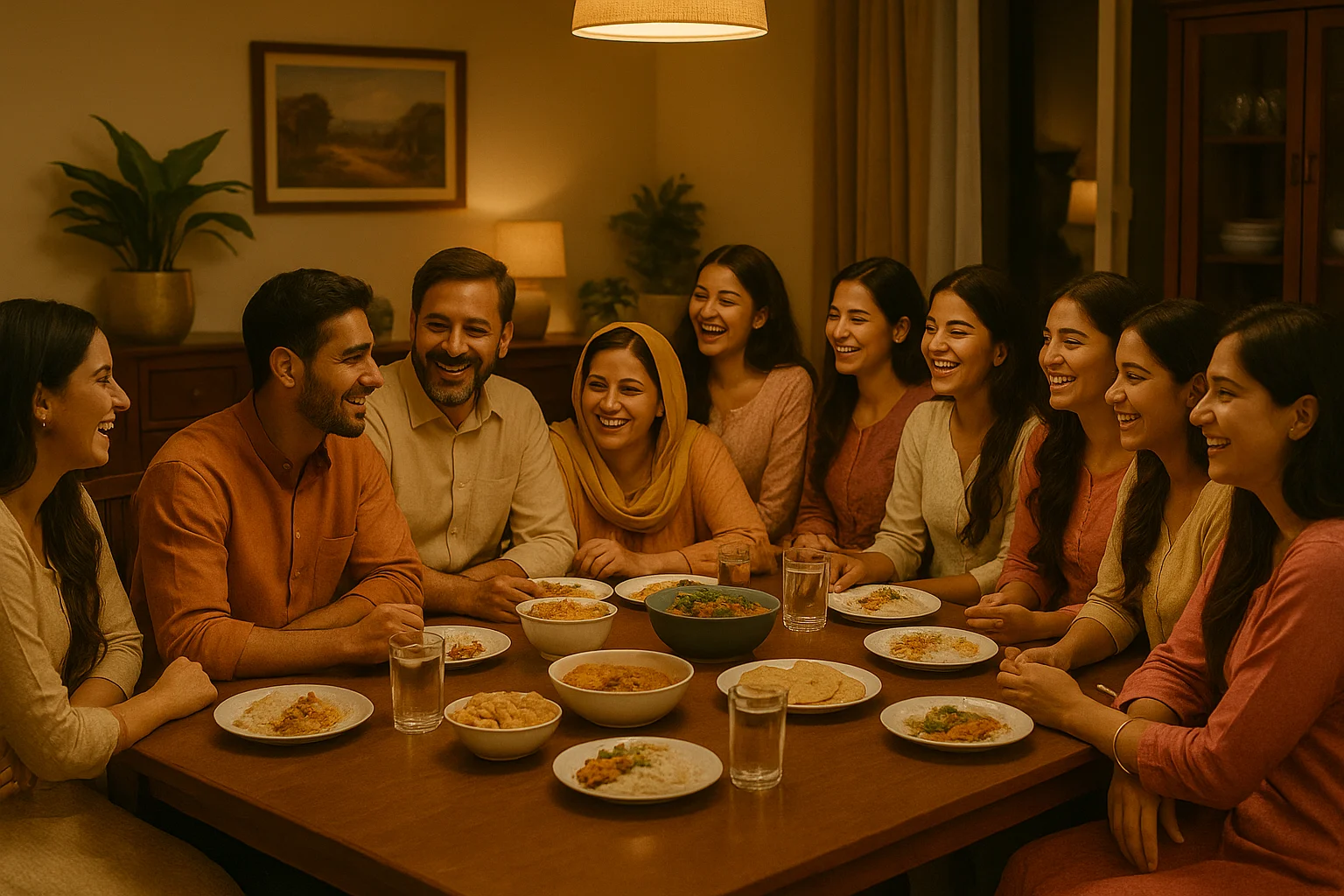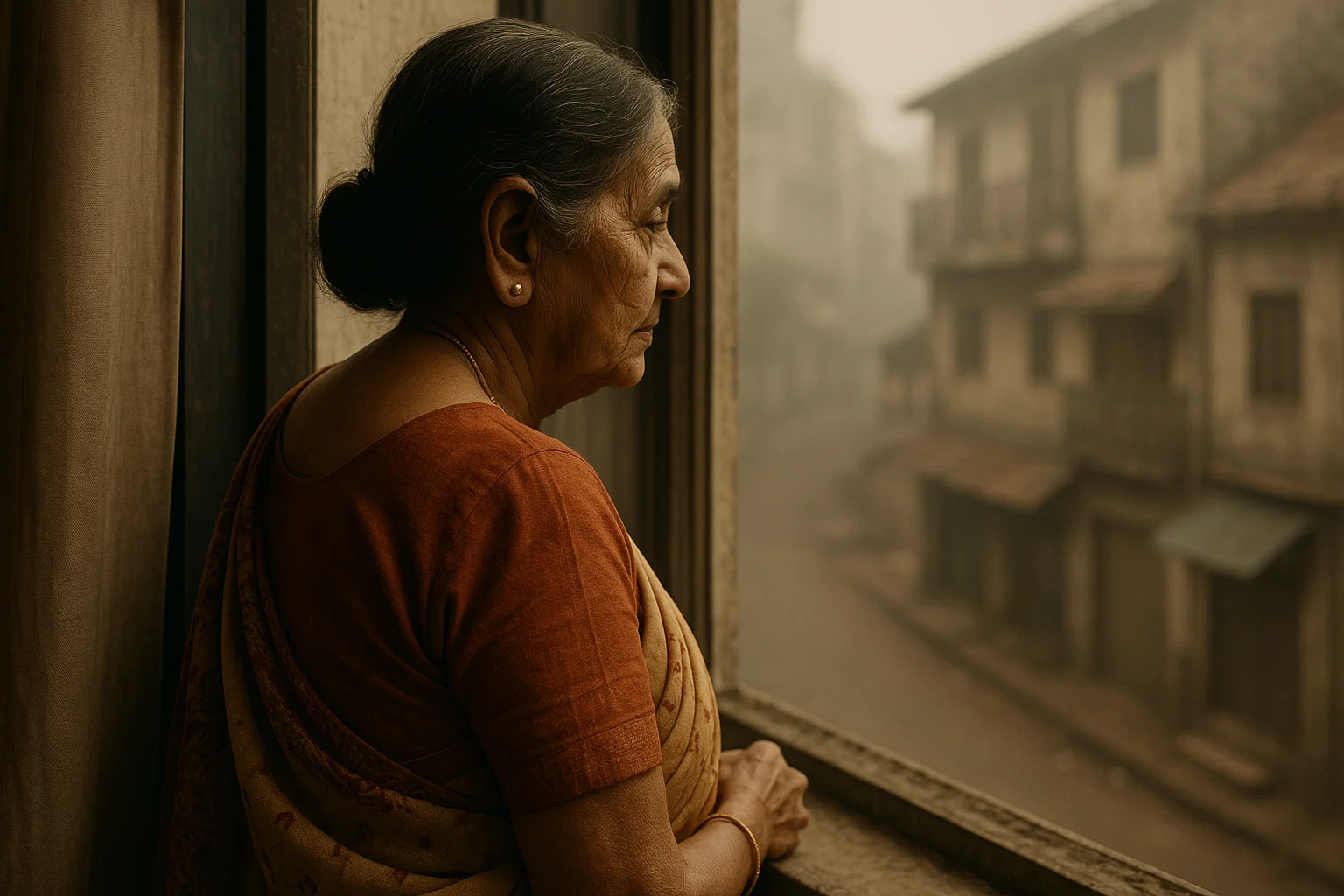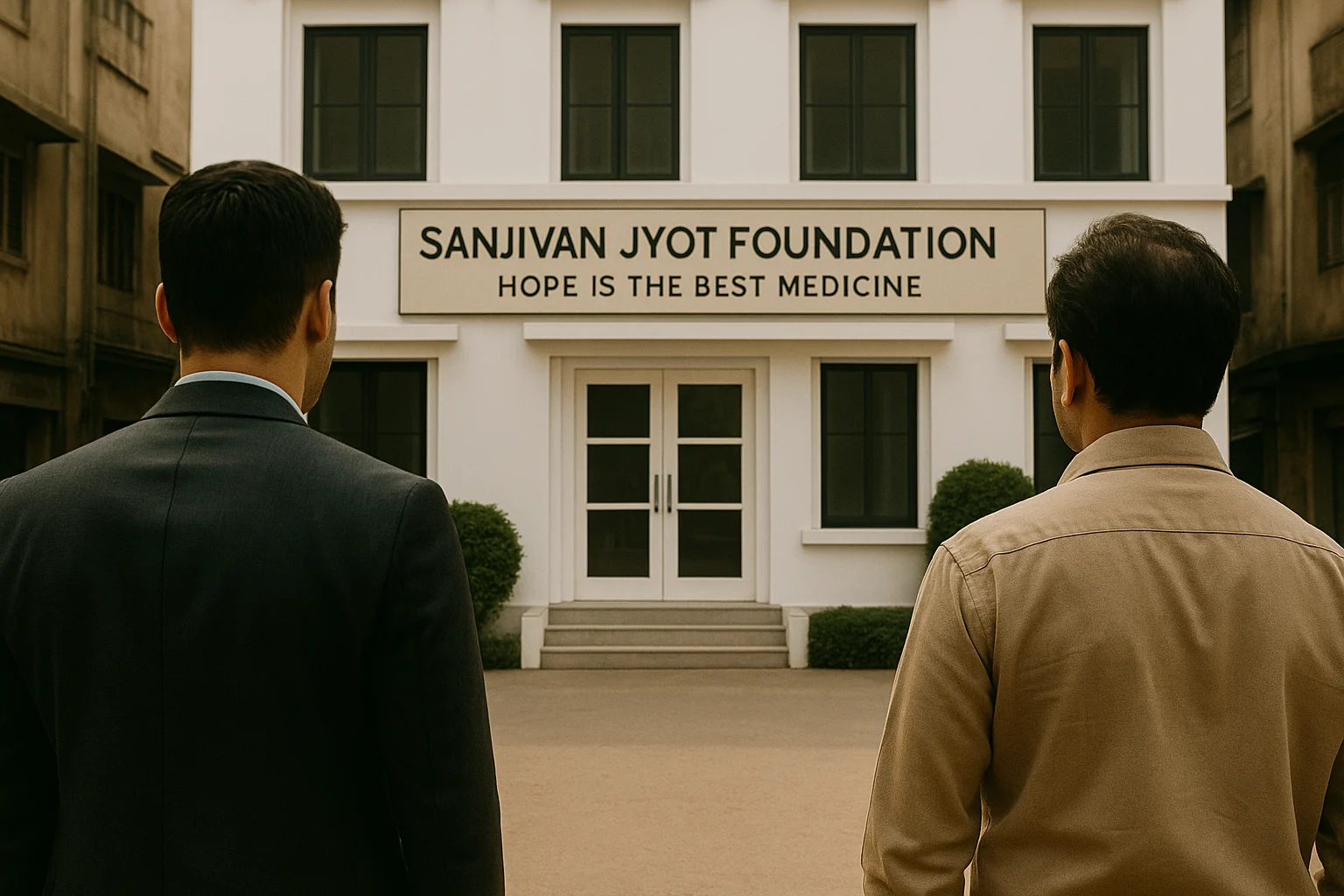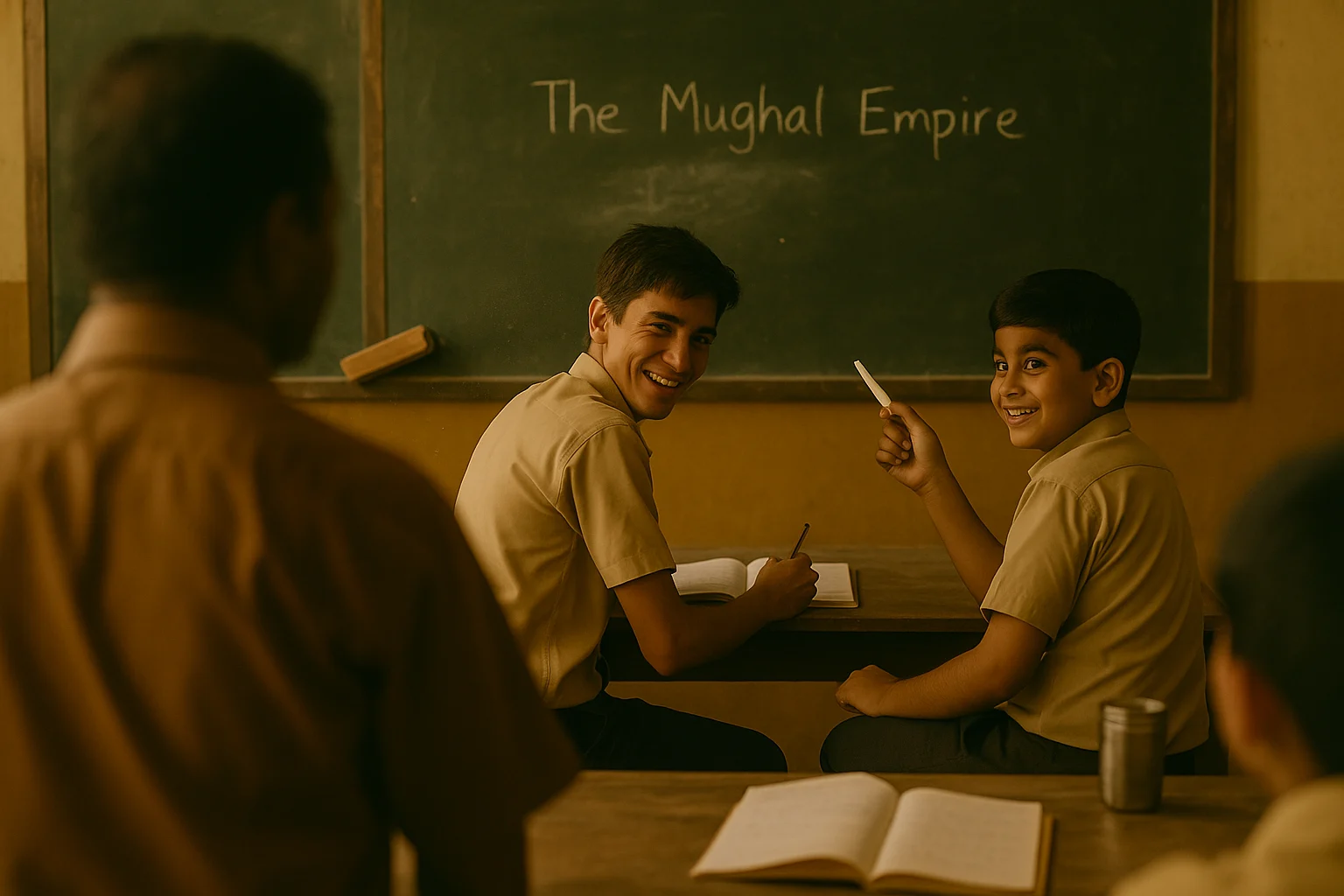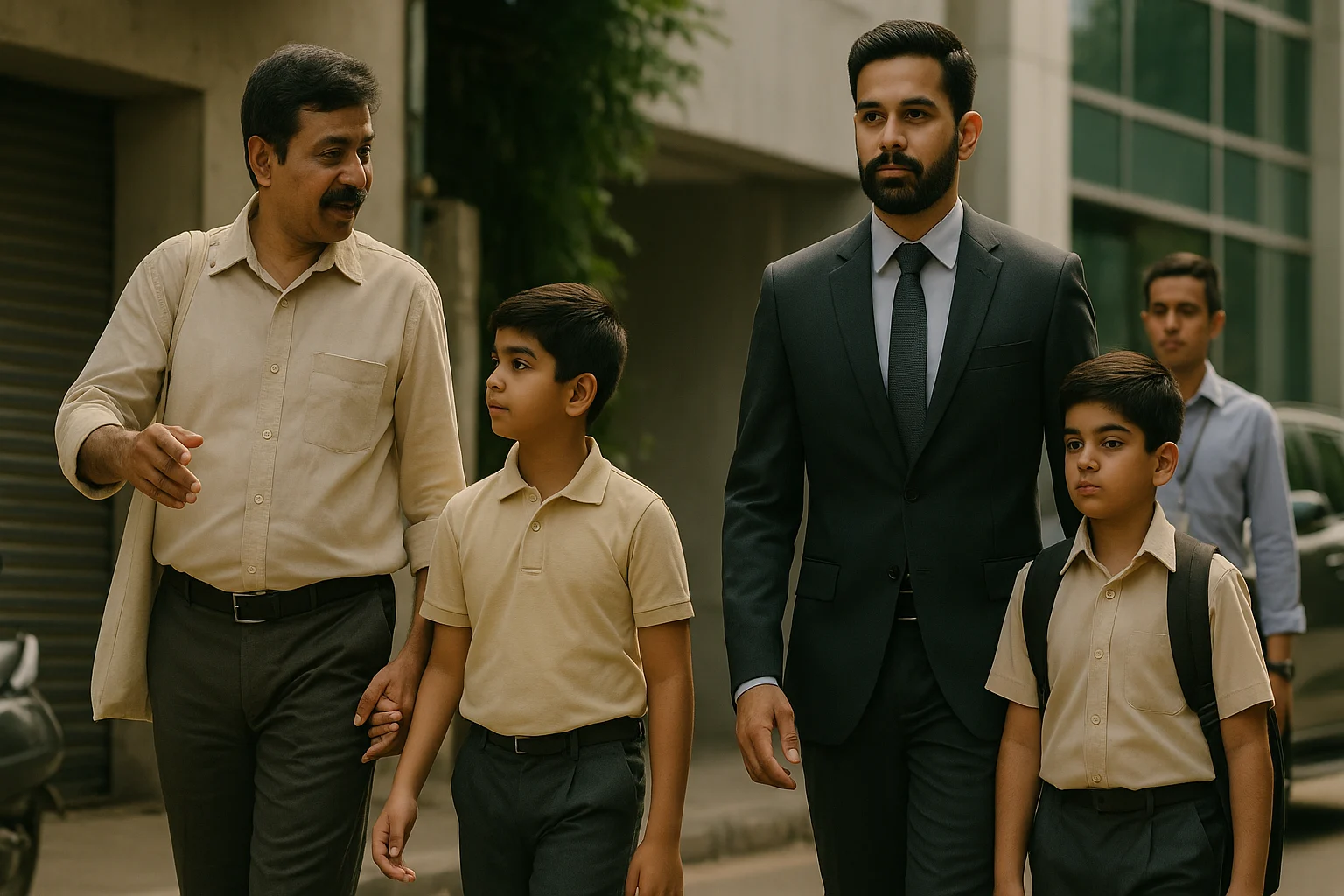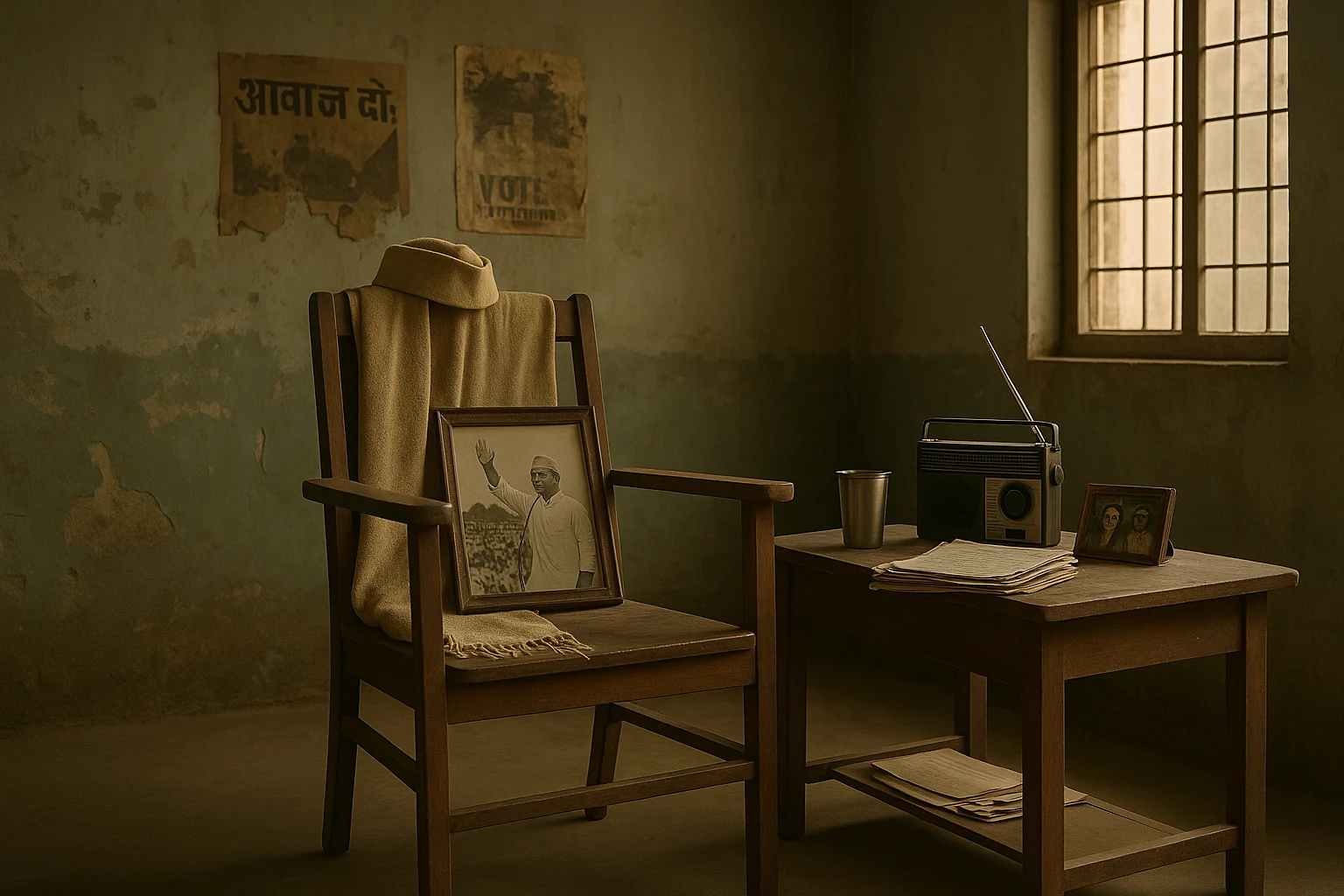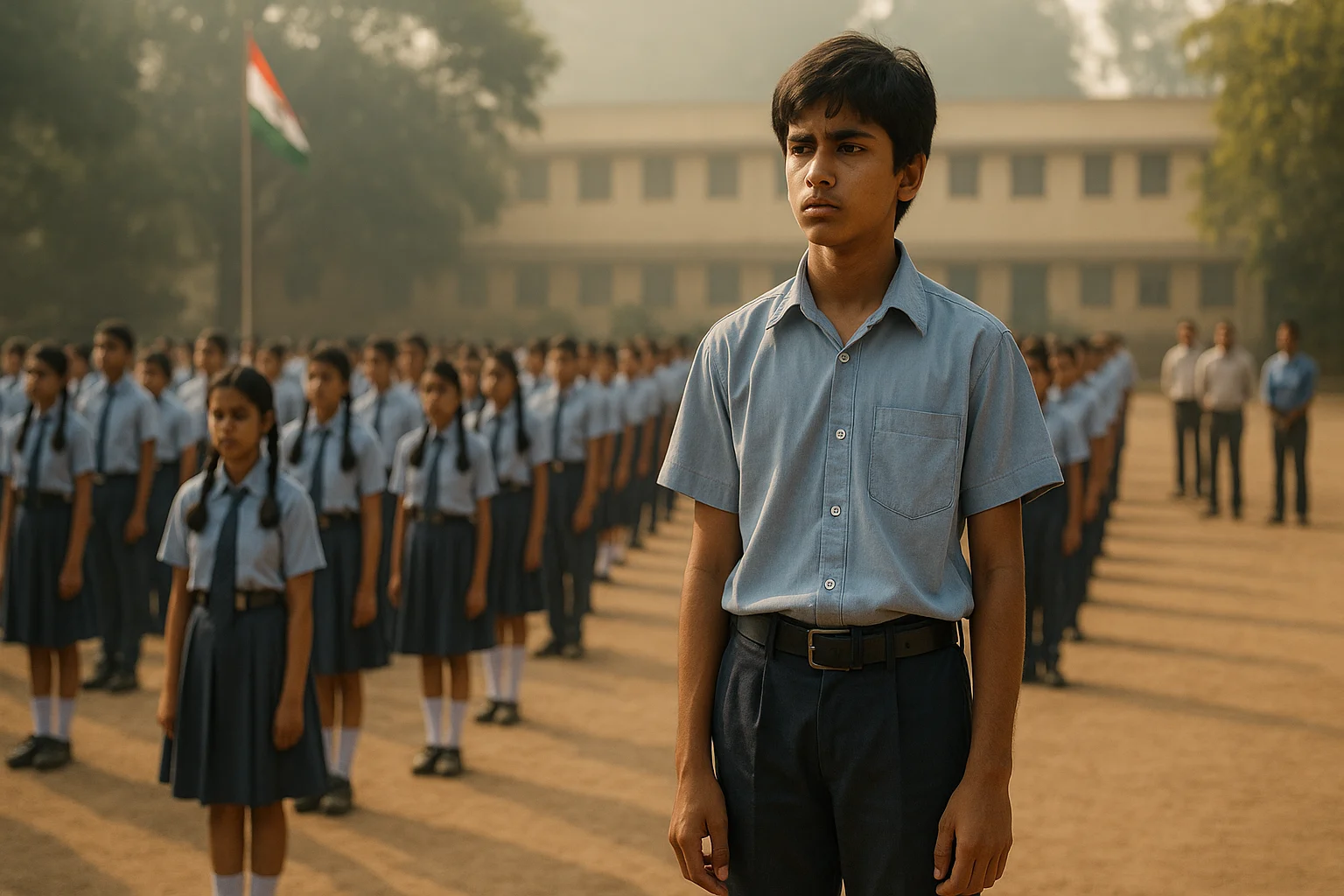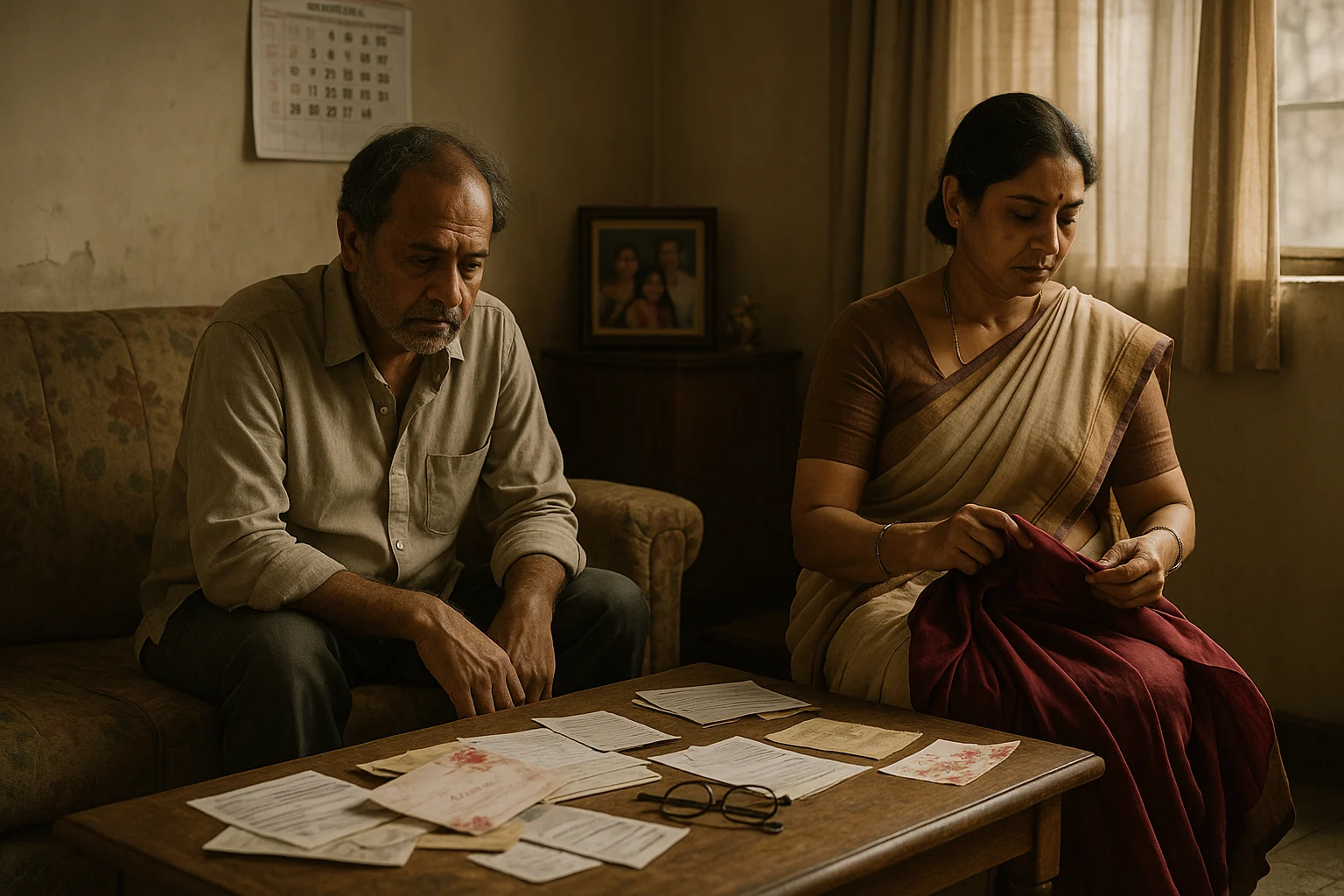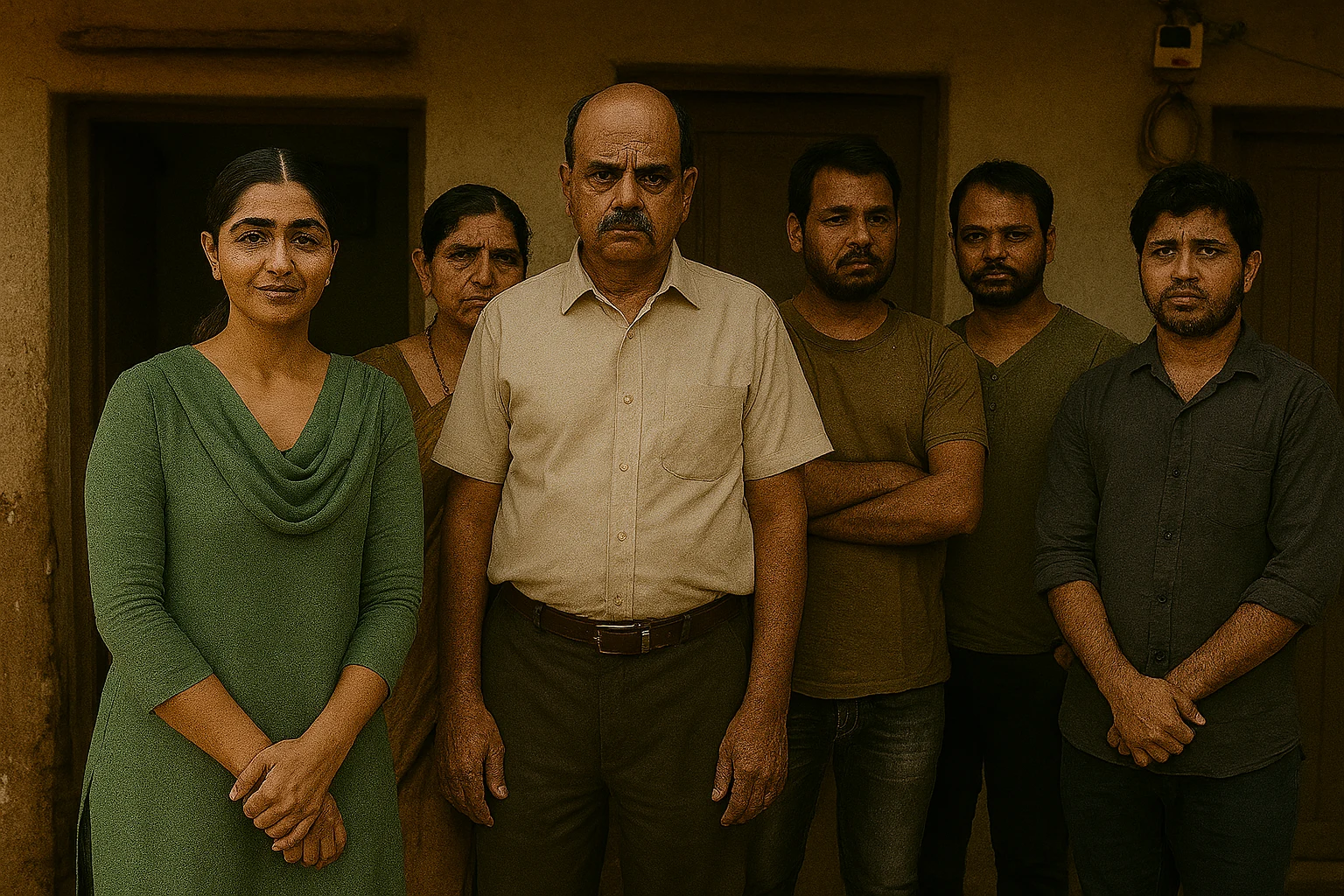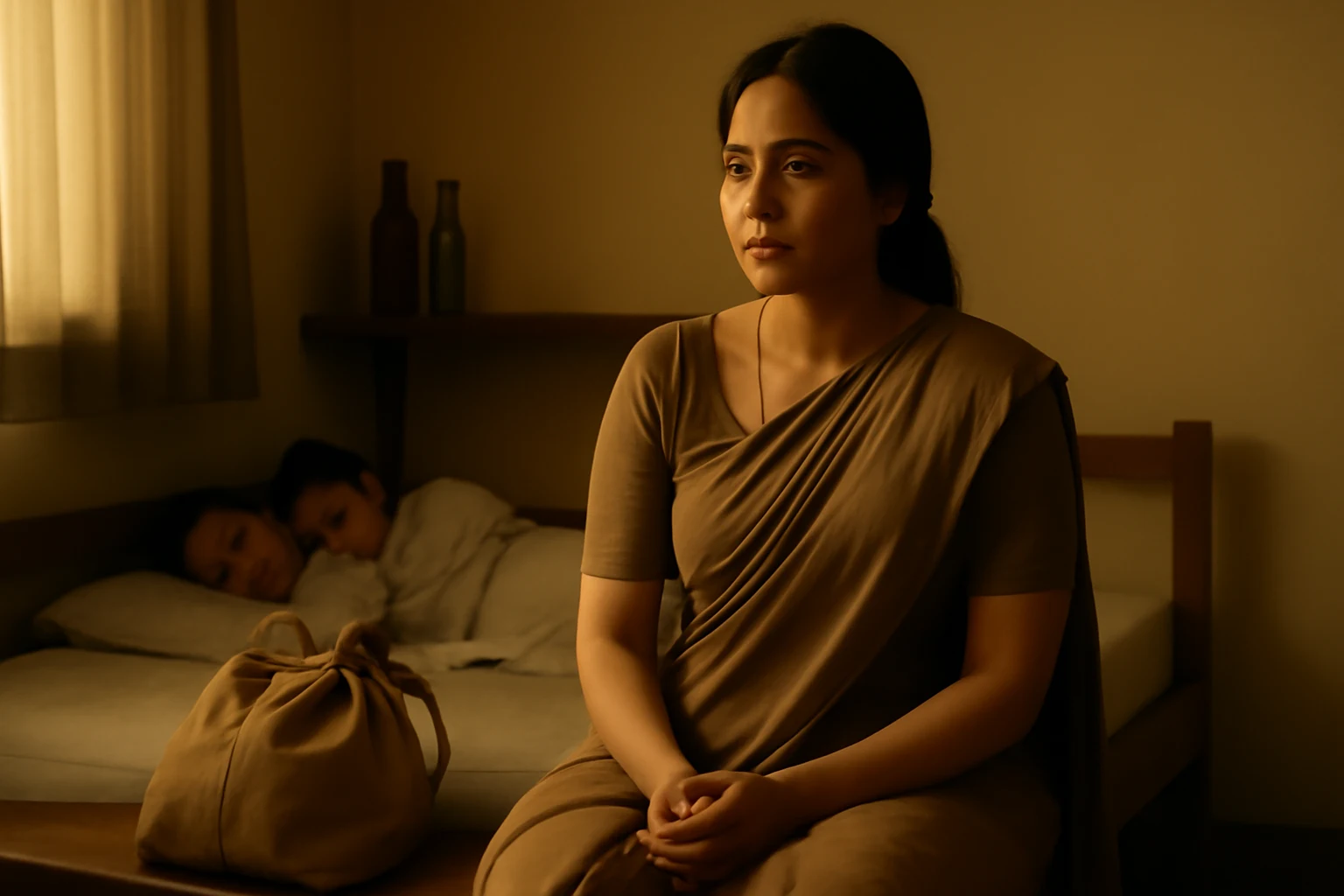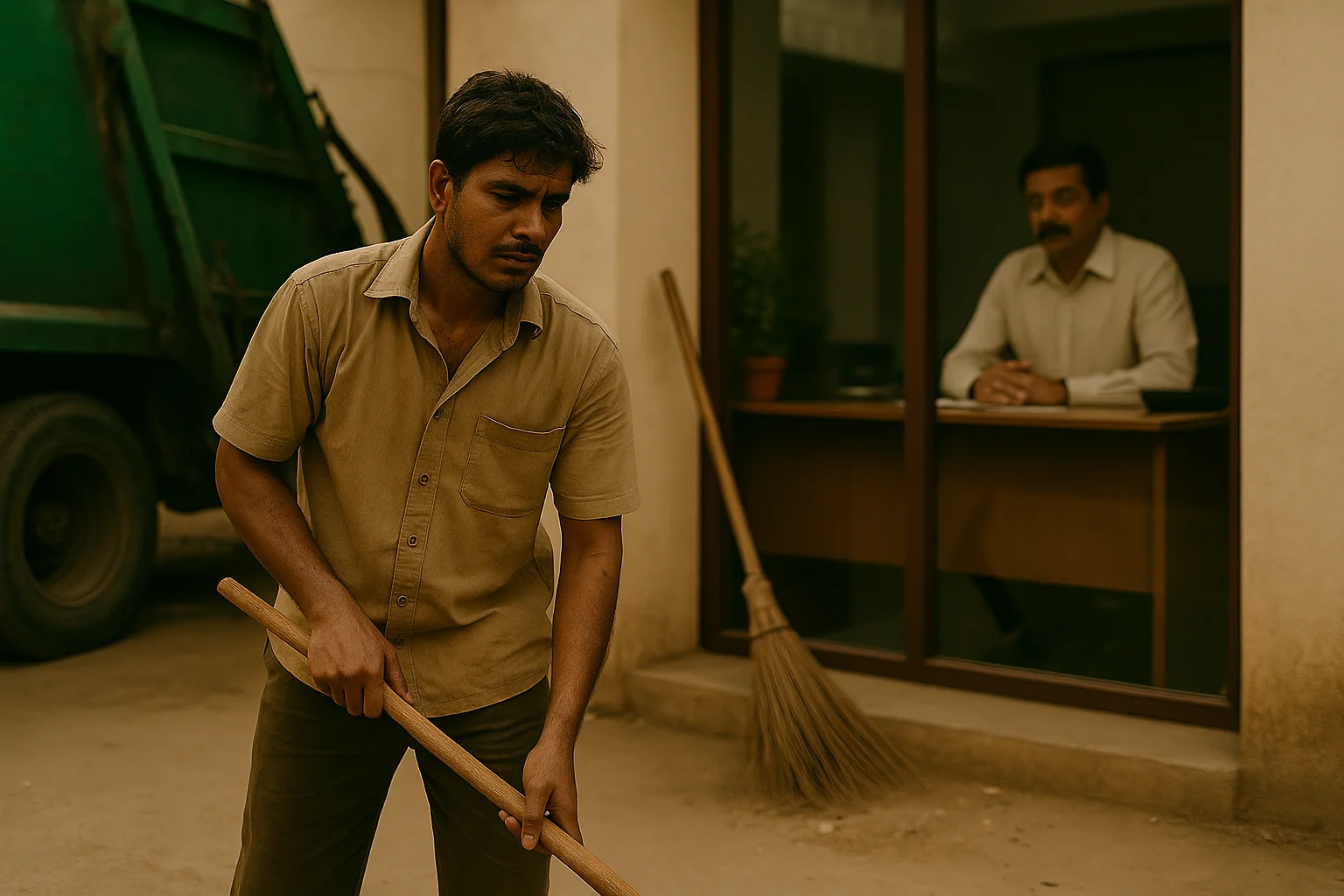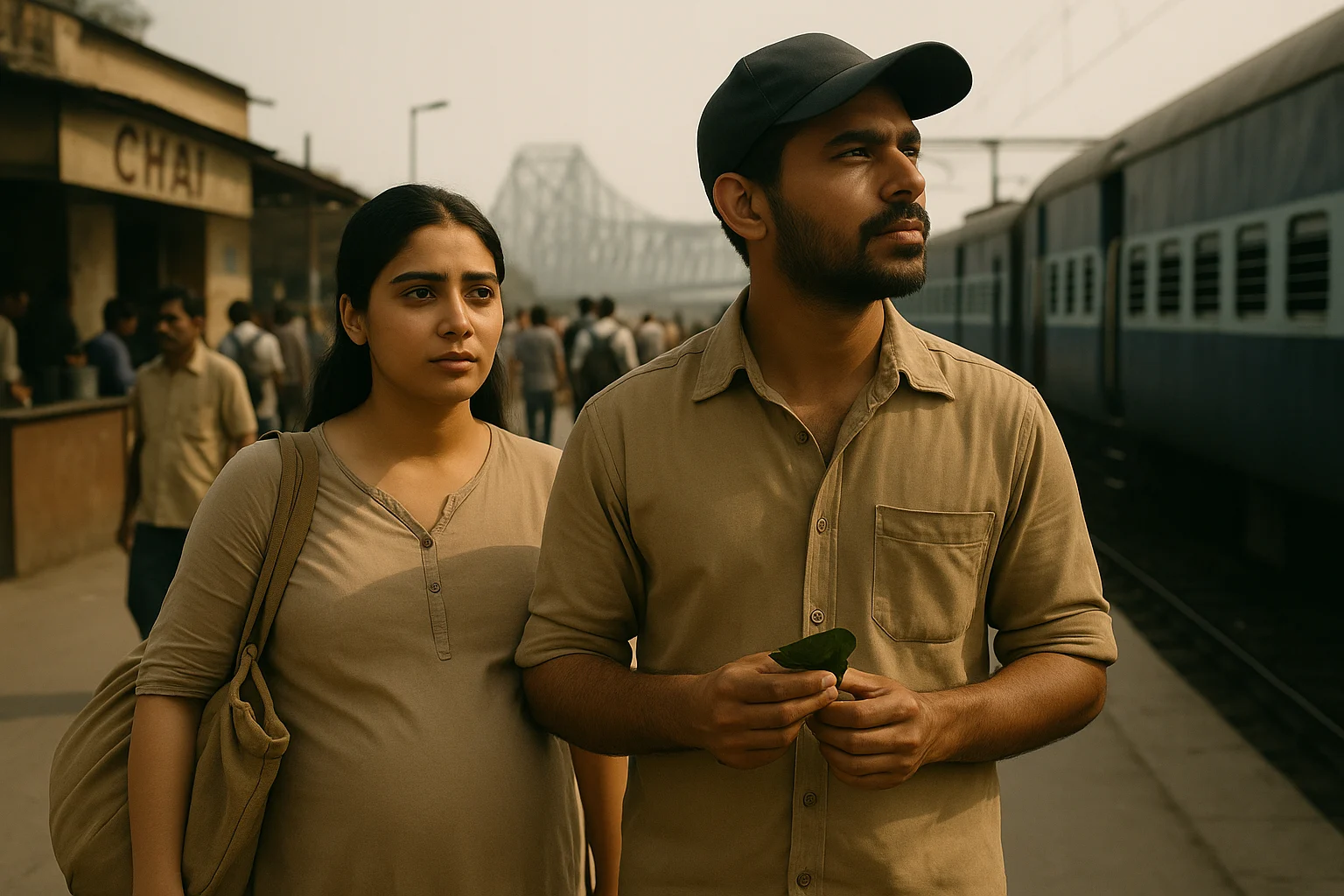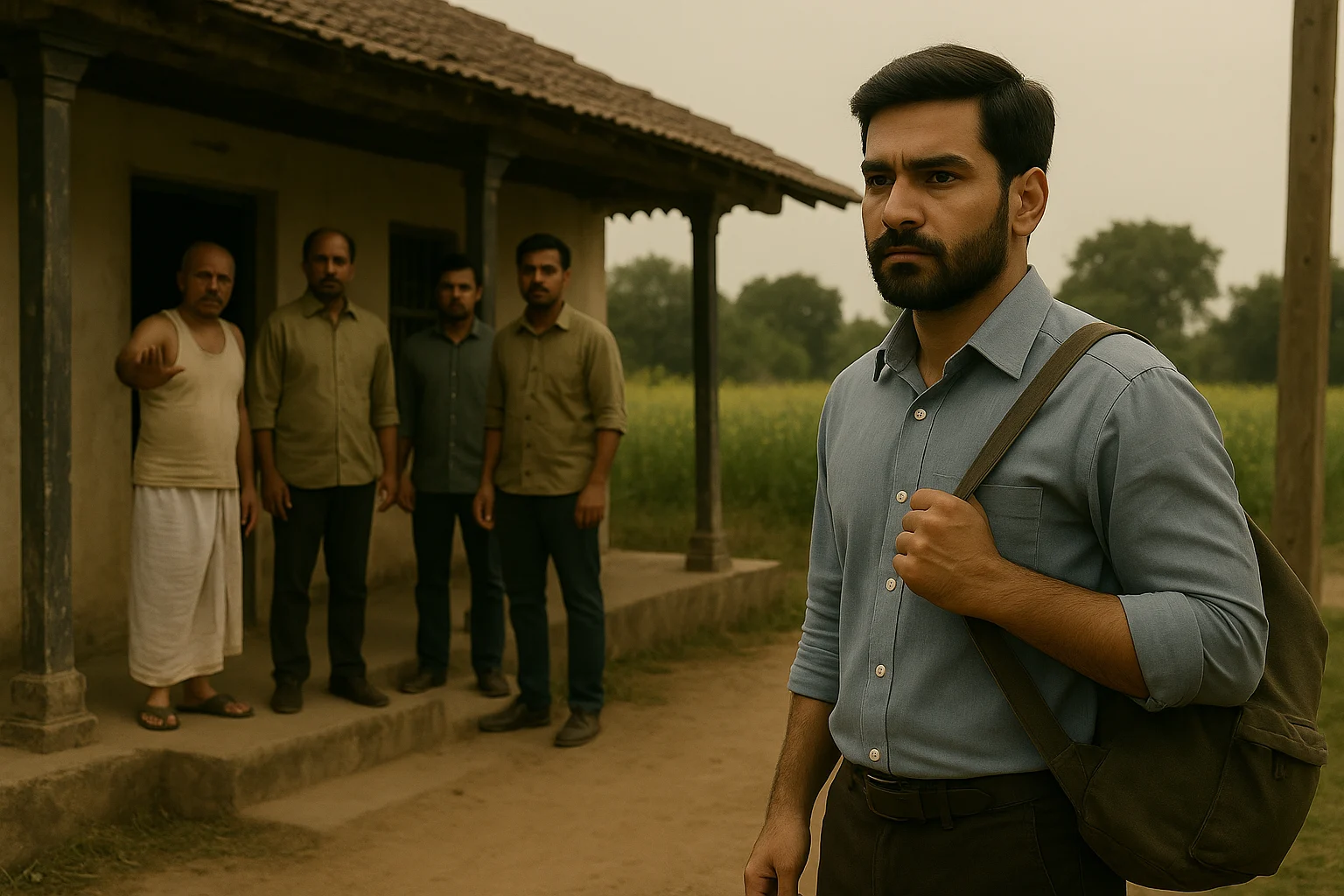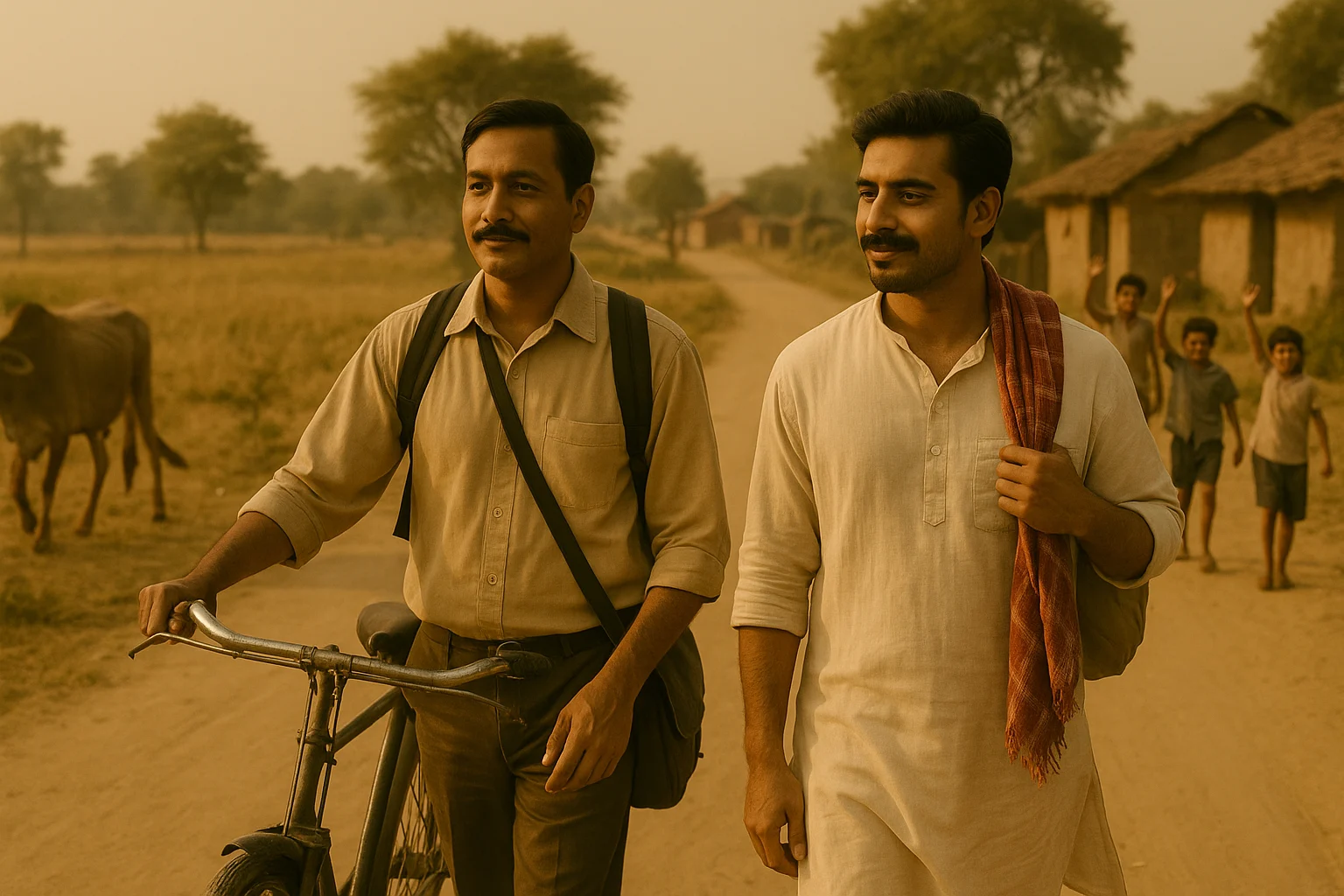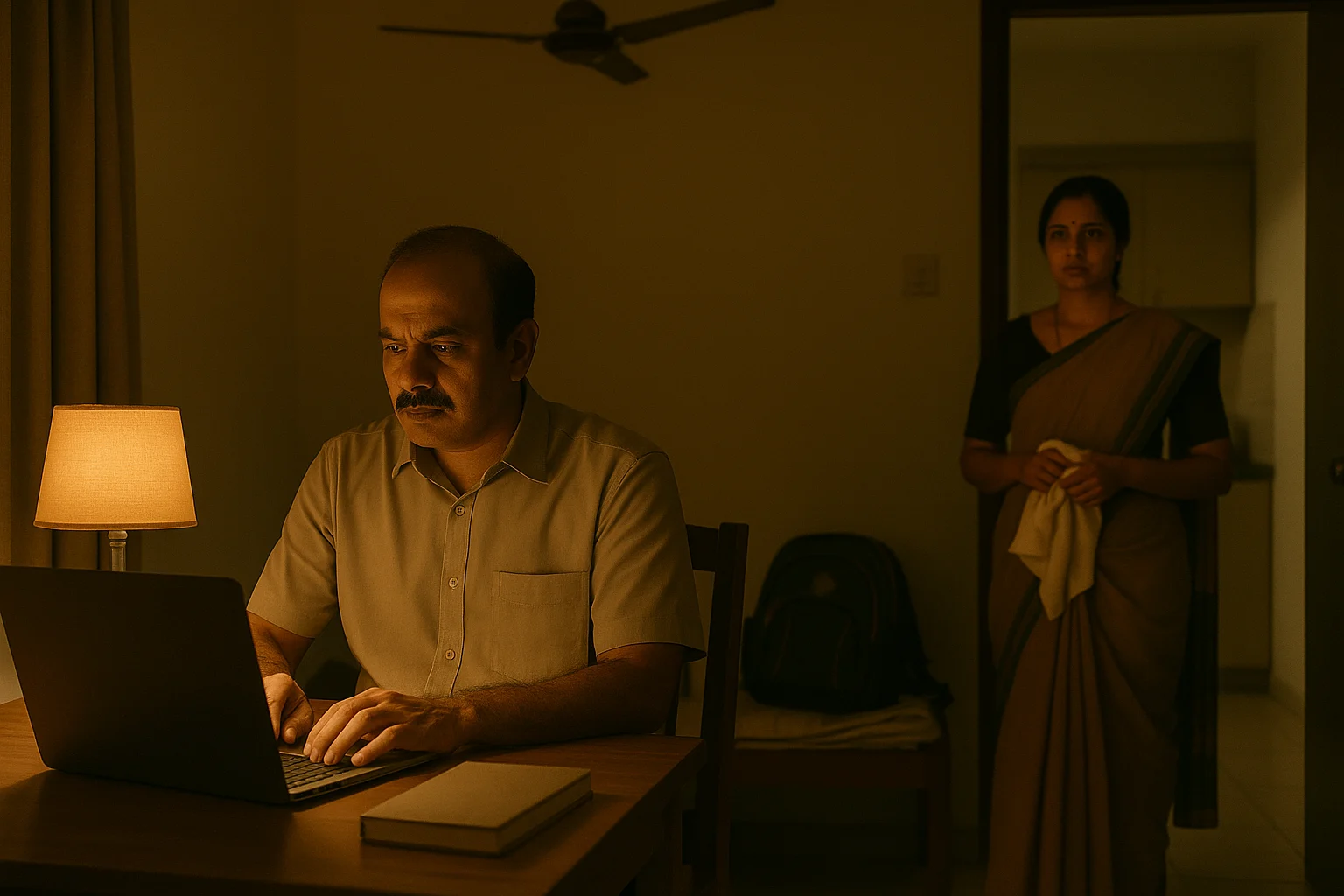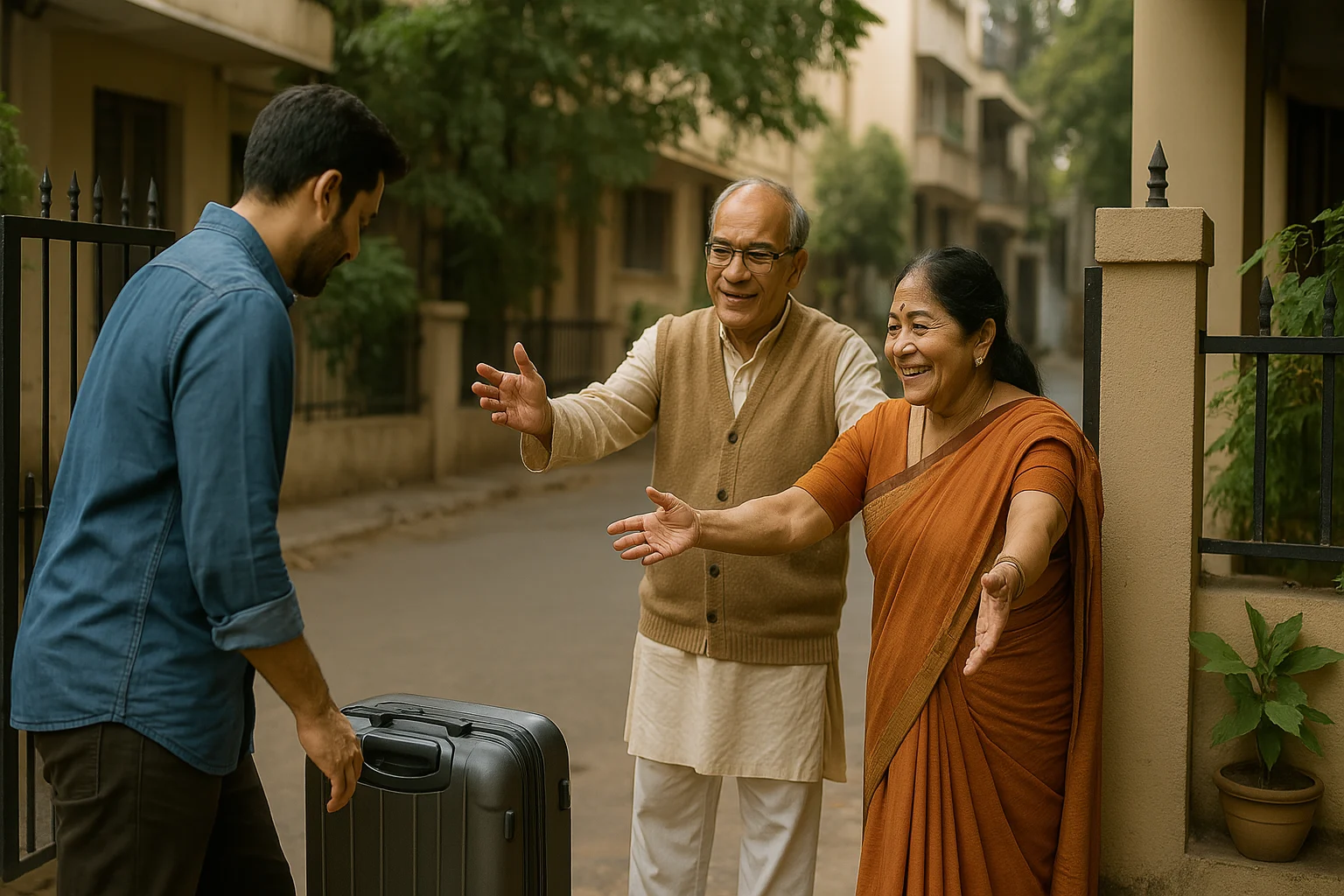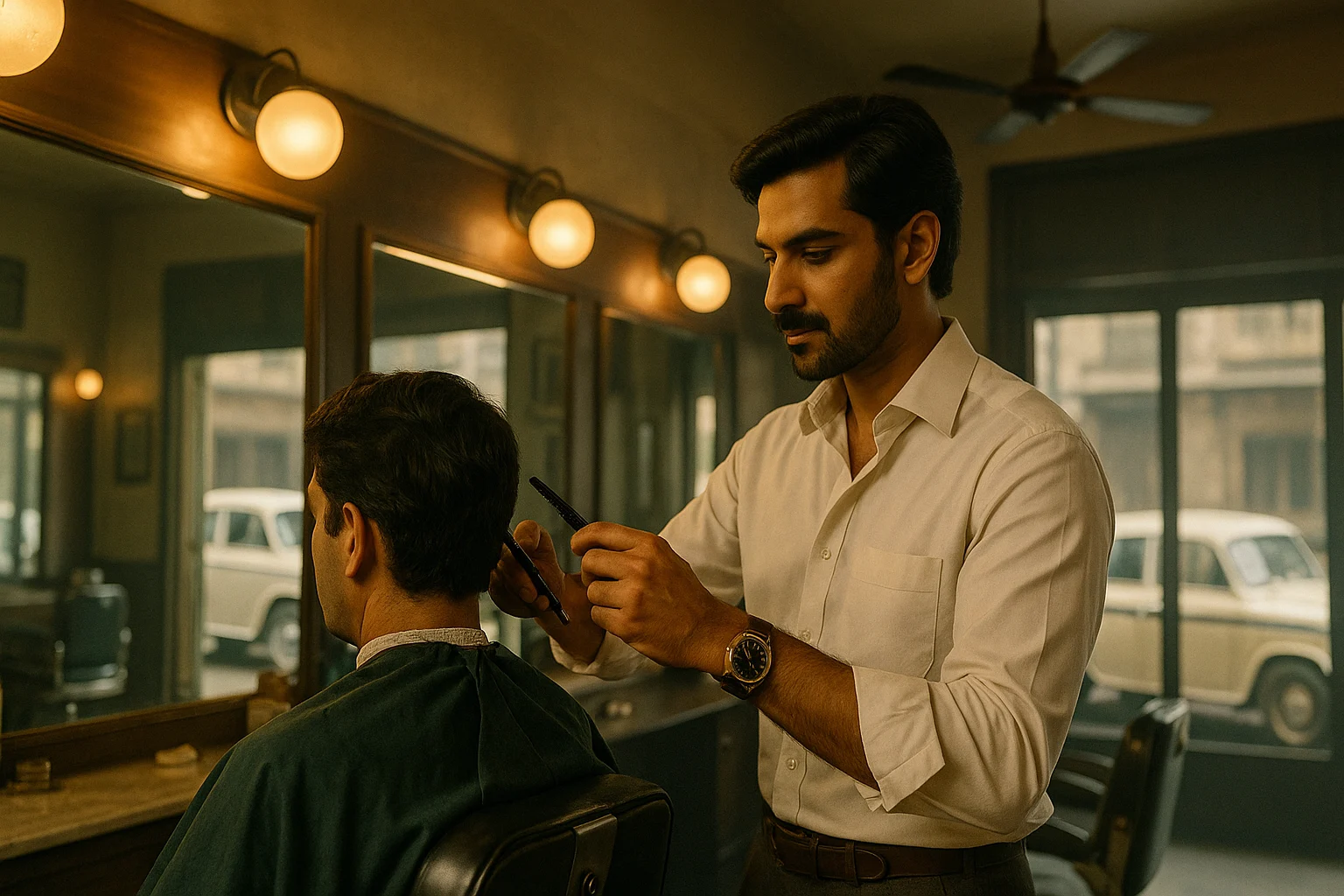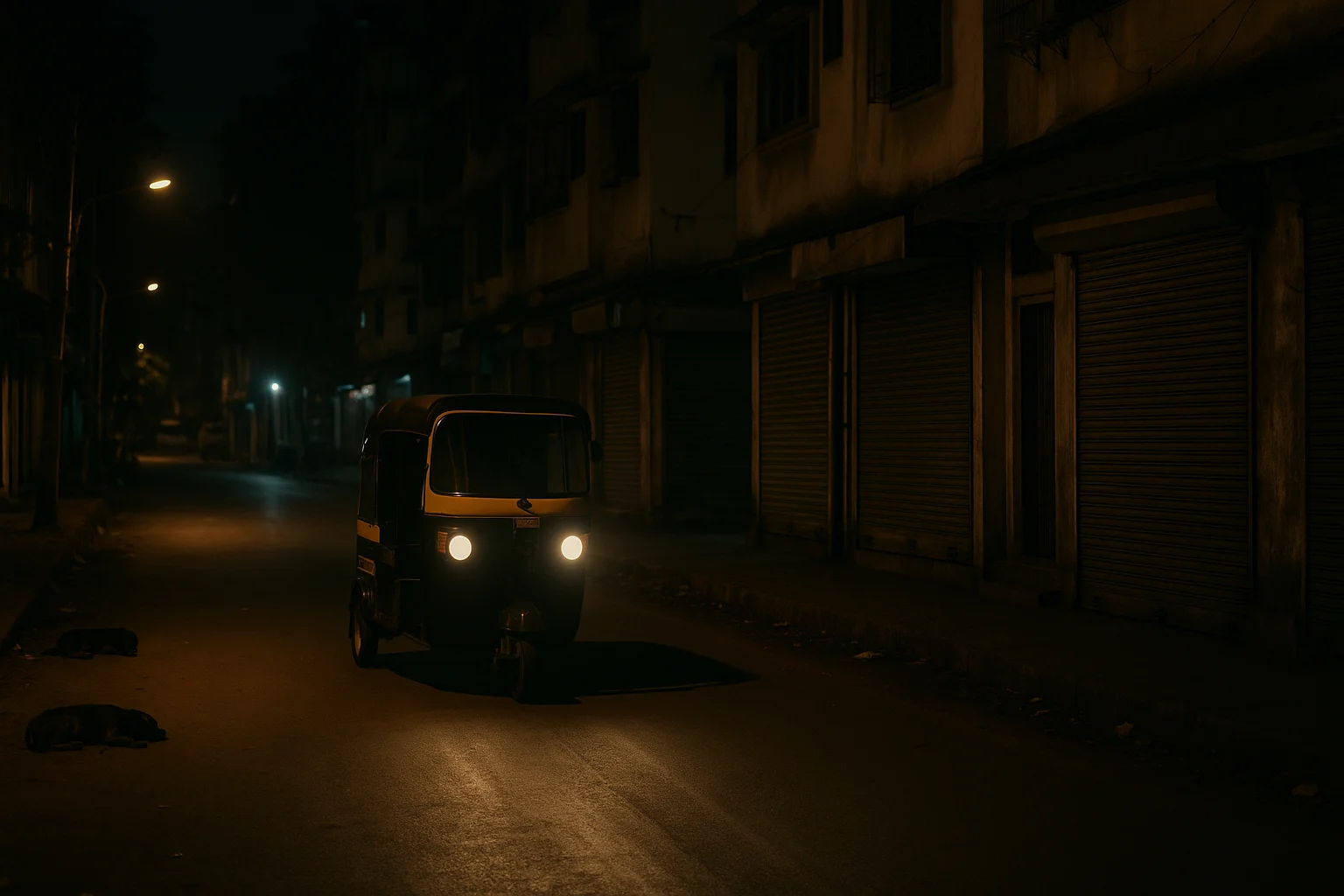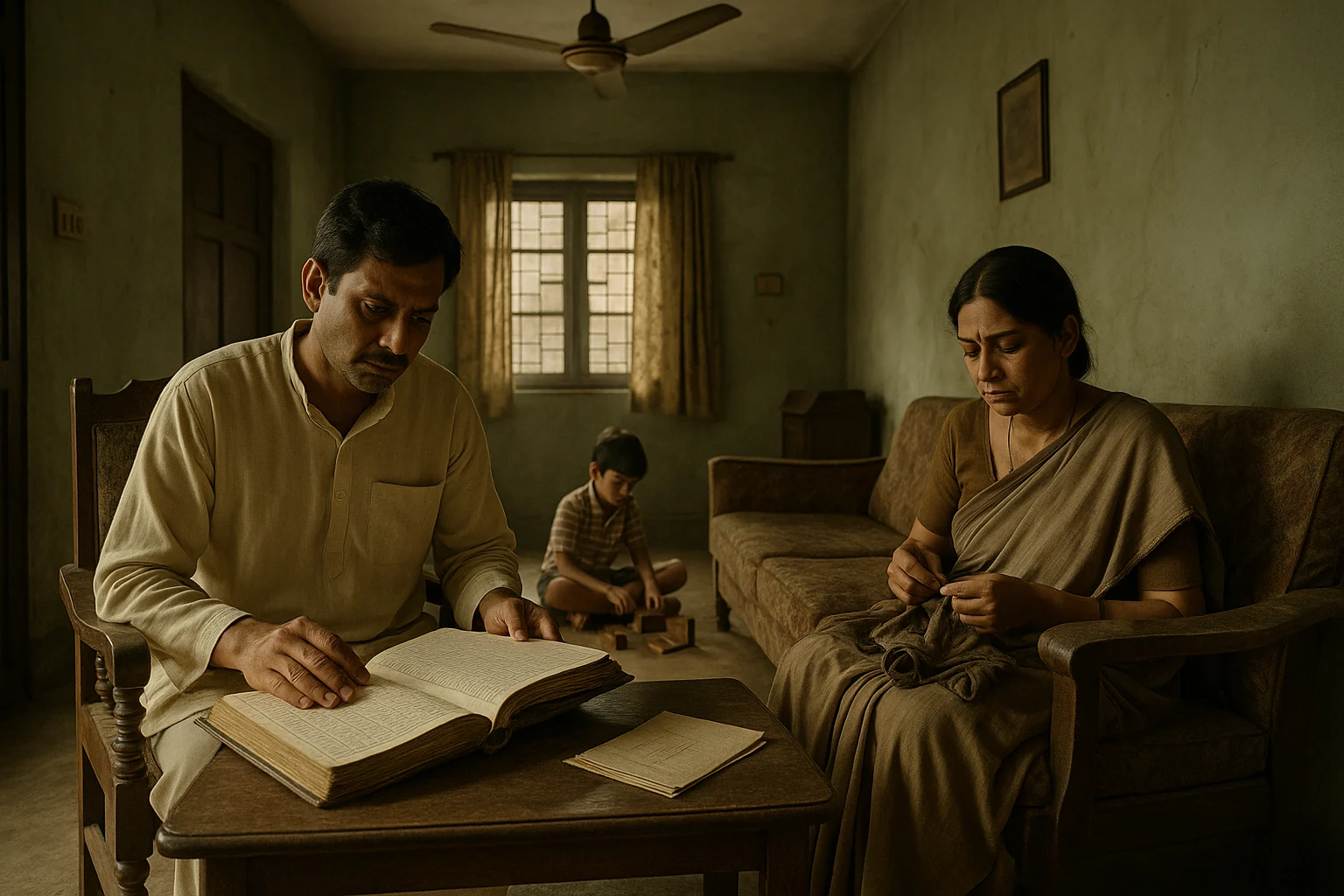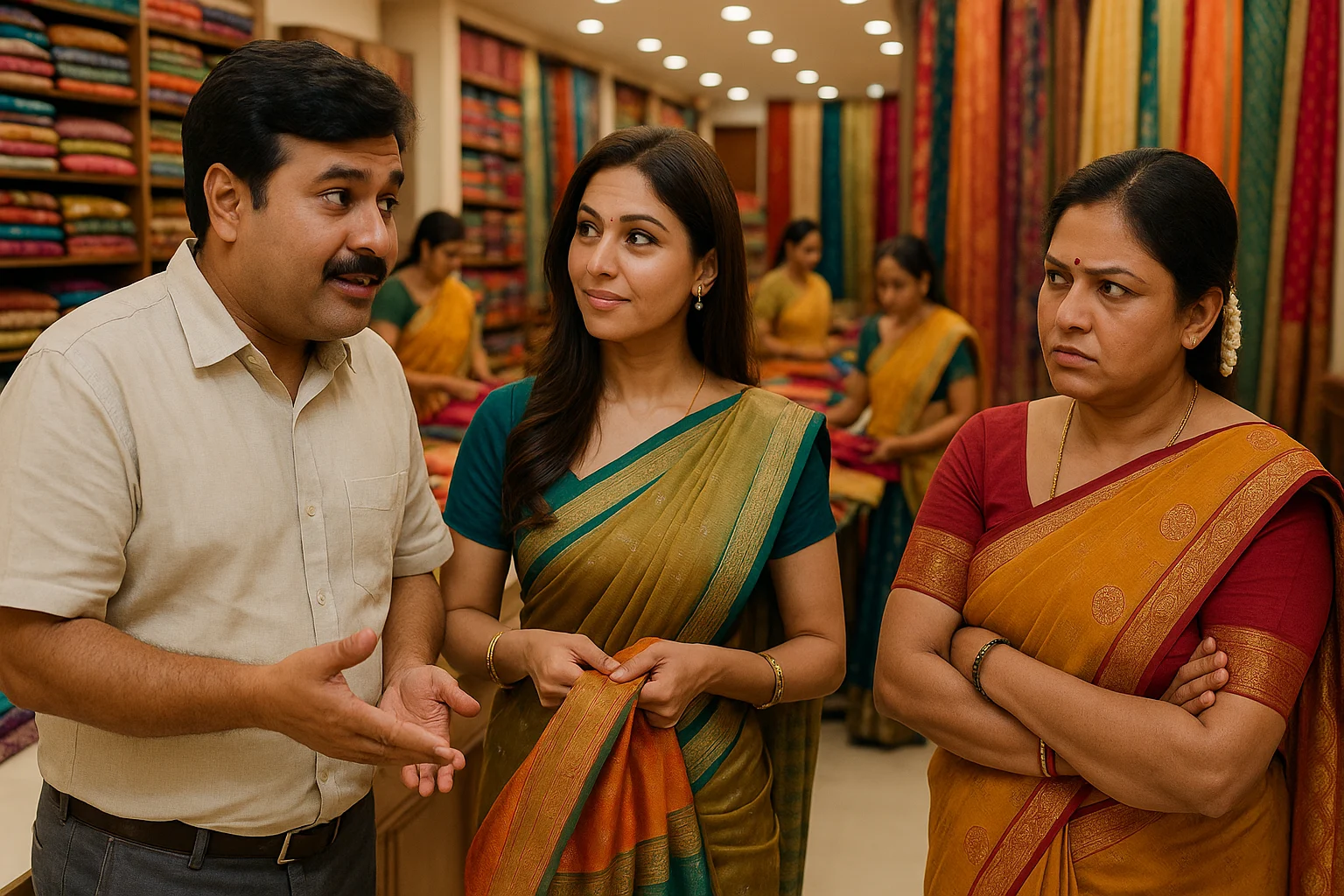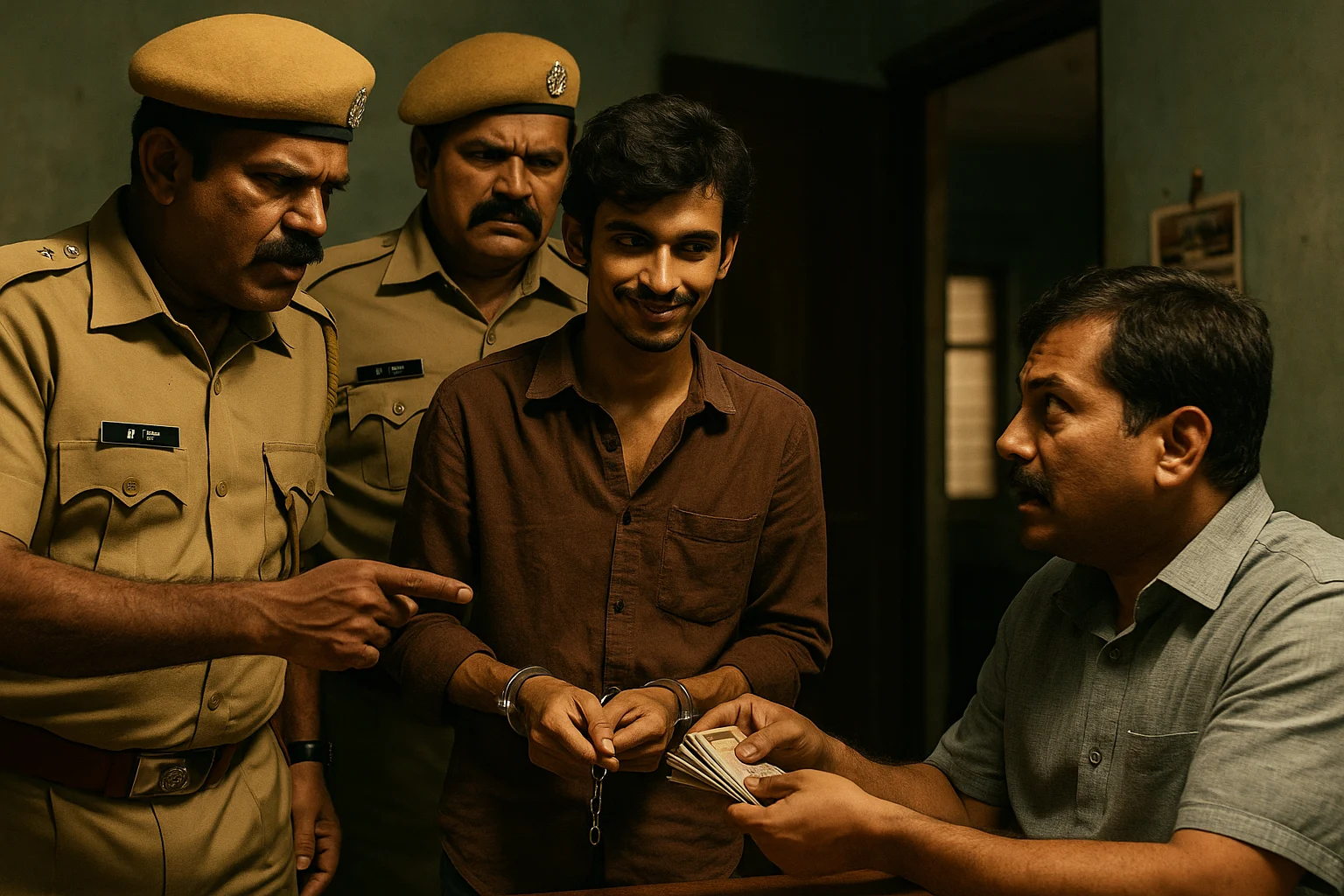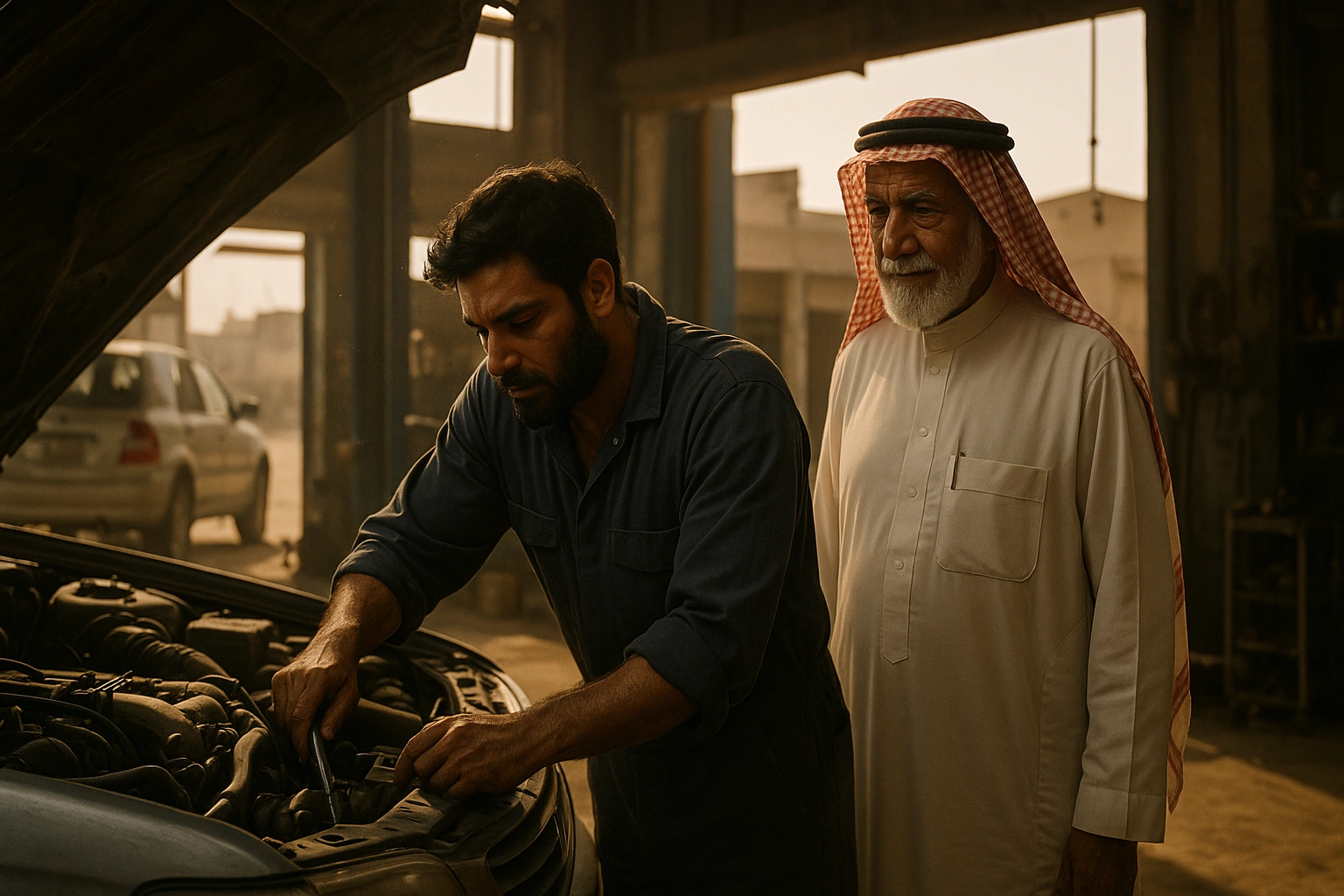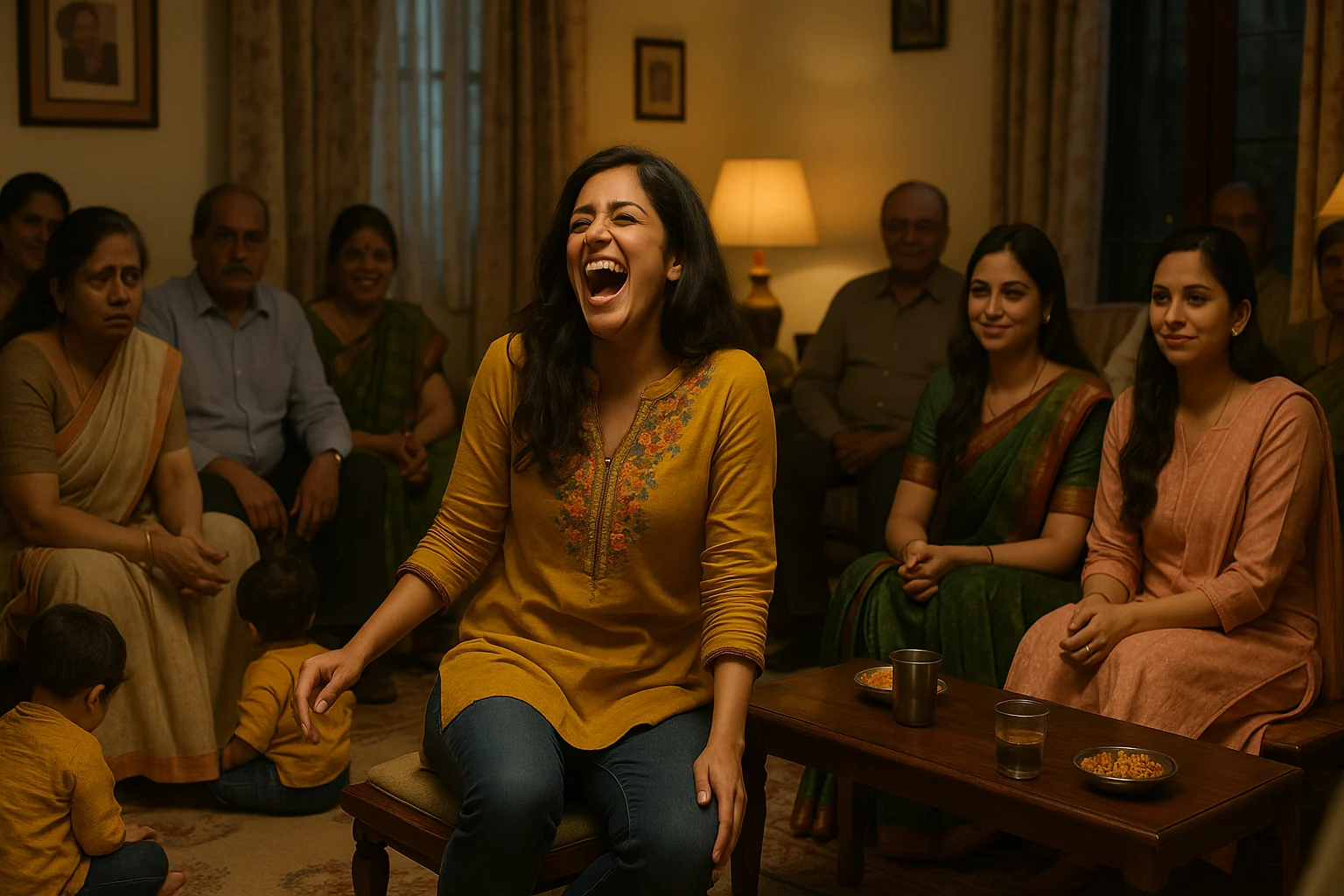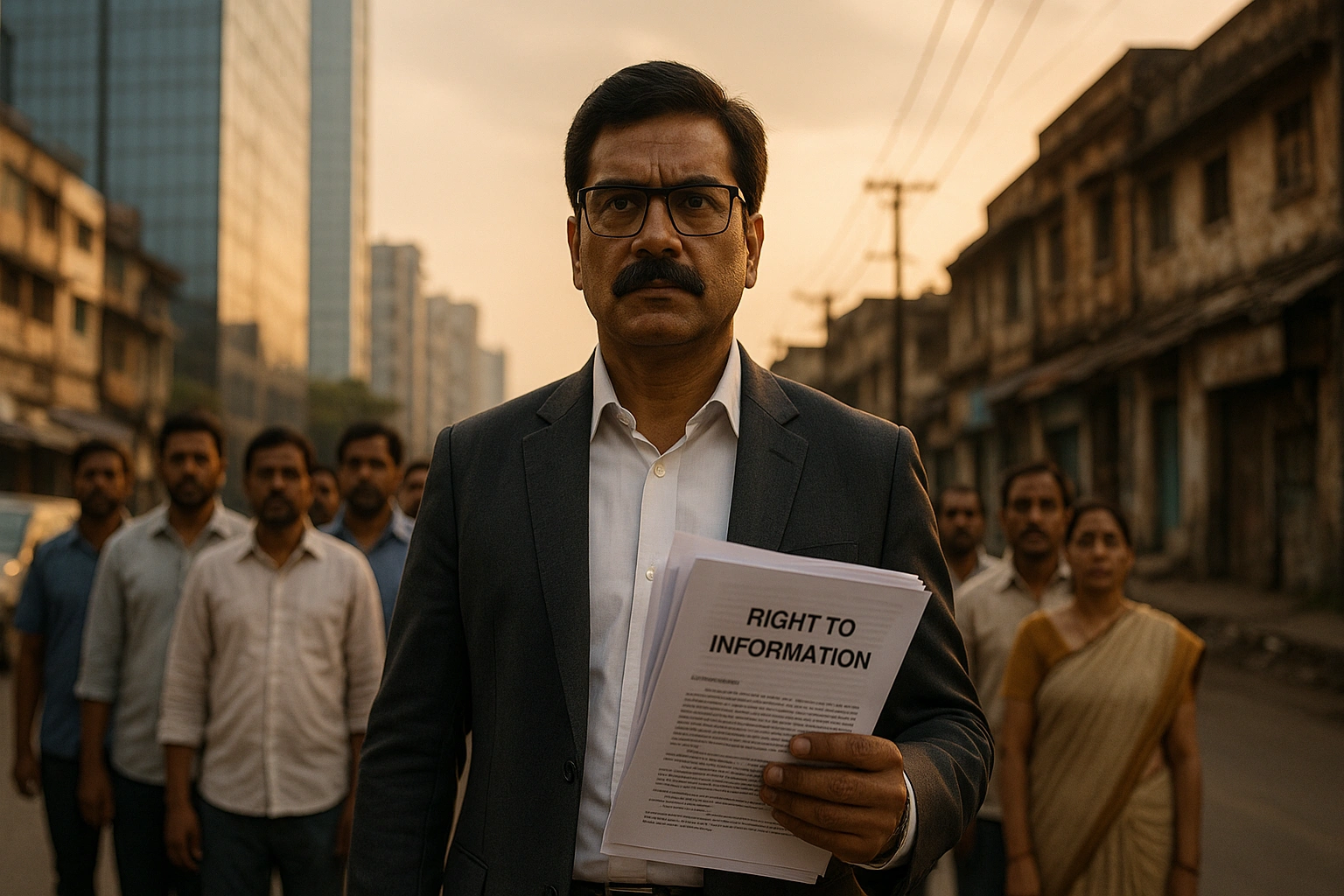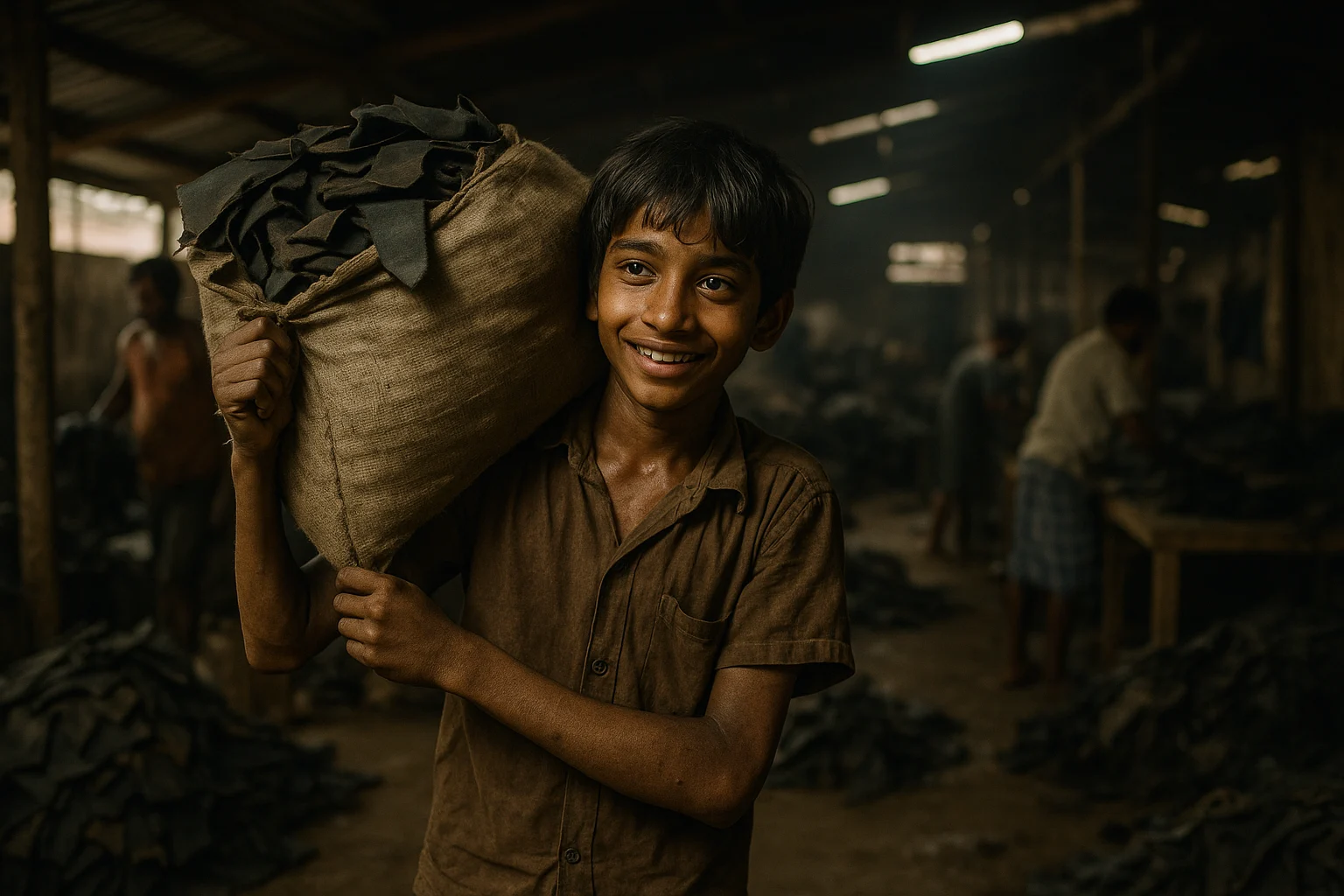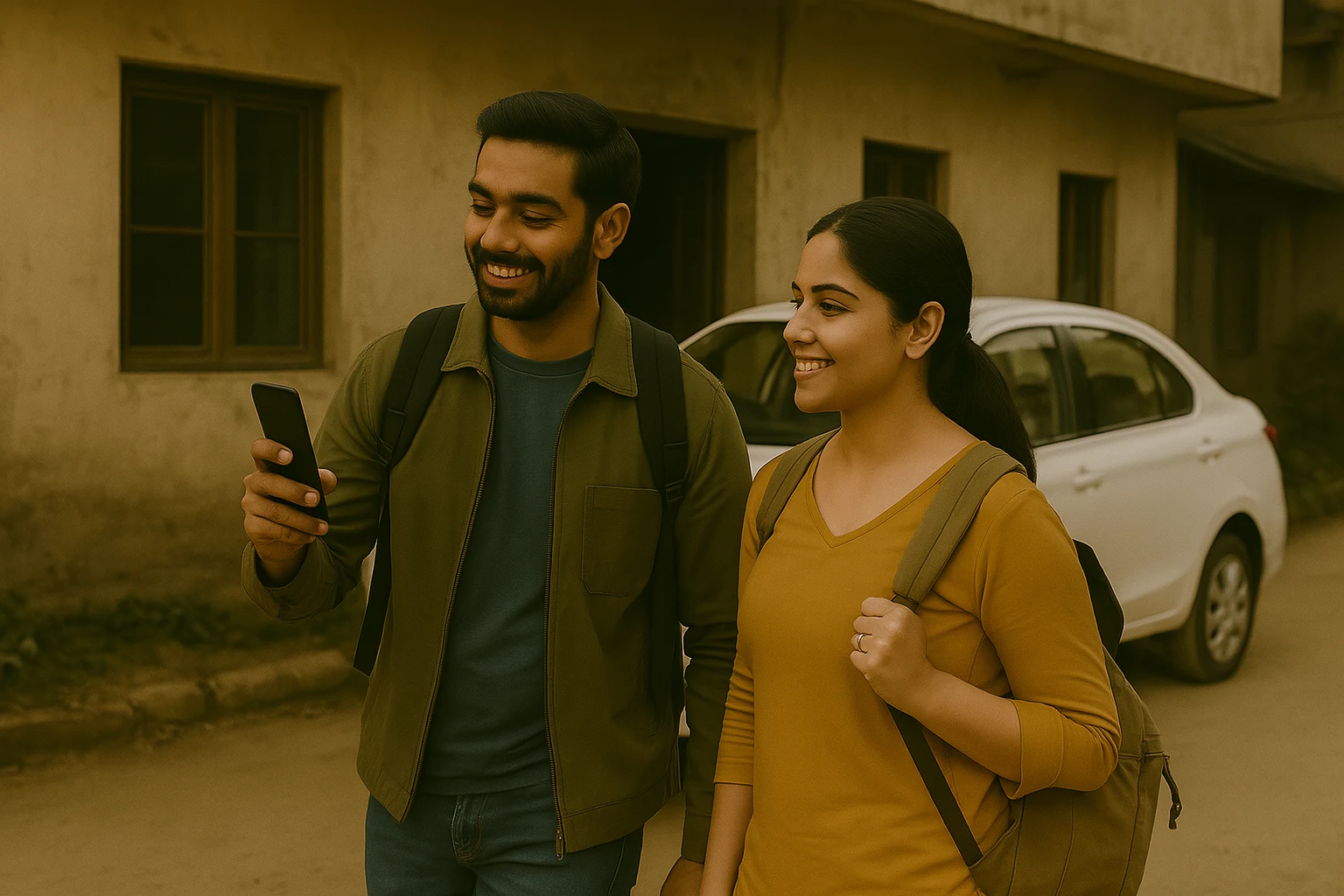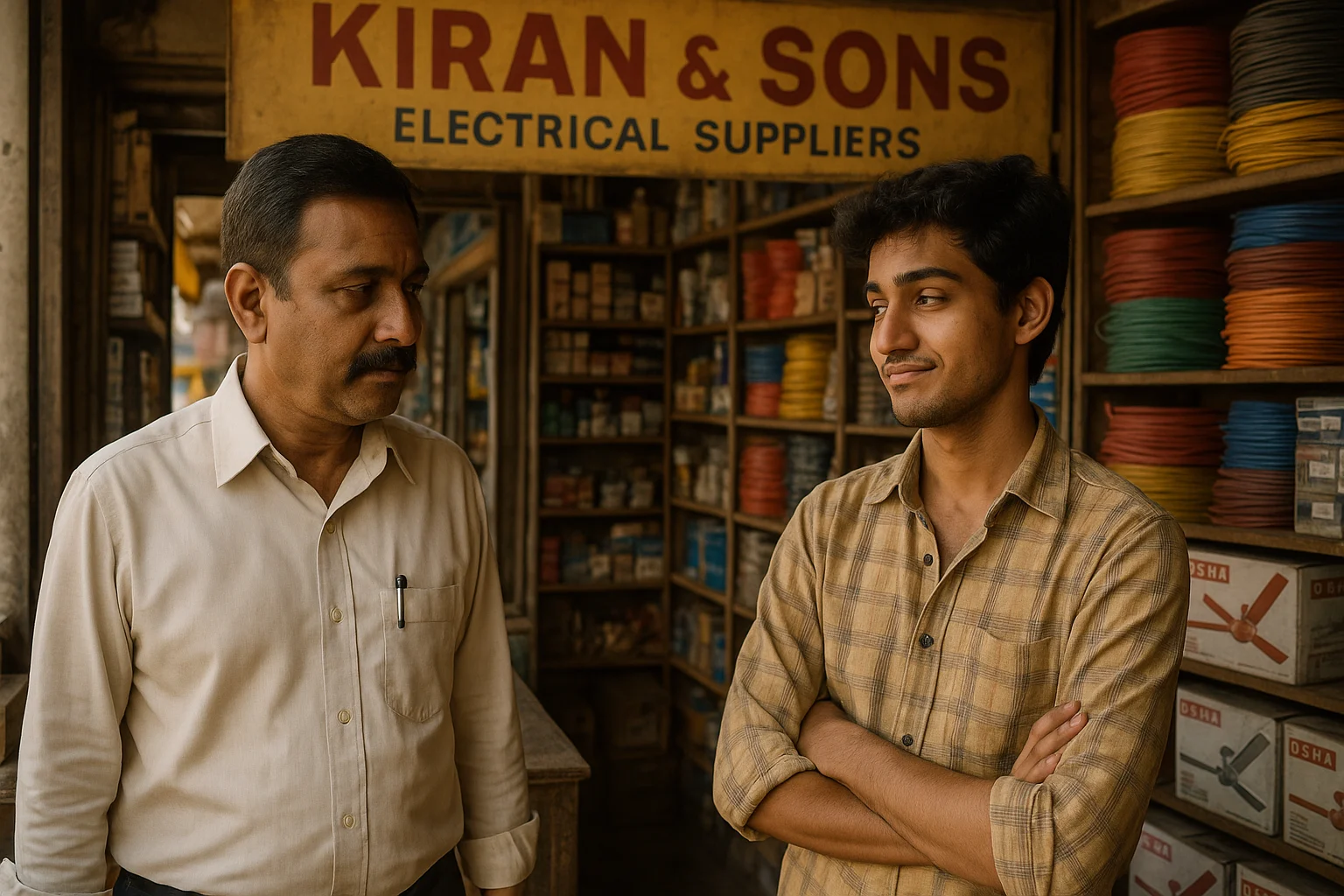In the heart of Jaipur, where the sun kissed the pink sandstone walls and camels occasionally wandered into traffic, lived two relatives—Raghunath Sharma, the elder by six years, and Dilip Sharma, the younger, but always the louder of the two.
Raghunath owned a modest grocery shop in Bapu Bazaar. He wasn’t flashy, but he knew his numbers better than most accountants. Every rupee was accounted for, every saving had a plan, and every plan had a backup. His three sons—Amit, Rajat, and Suresh—grew up helping in the shop after school, learning not just maths but also the magic of modesty. They wore clean but simple clothes, read books from the public library, and never asked for the latest mobile phones, unlike their cousins.
Dilip, on the other hand, was a government contractor with a chest puffed up like a pigeon in mating season. “Yeh toh chhoti deal hai,” he would laugh, throwing parties with mutton biryani, DJs, and whisky fountains even if the deal wasn’t finalized. His three sons—Vicky, Lucky, and Rocky (yes, those were their real names)—bounced around in branded sneakers and carried iPhones like they were national awards.
While Raghunath saved every paisa he could, Dilip flung rupees like wedding confetti. New cars, foreign trips, spa days for his Labrador—nothing was too much to impress.
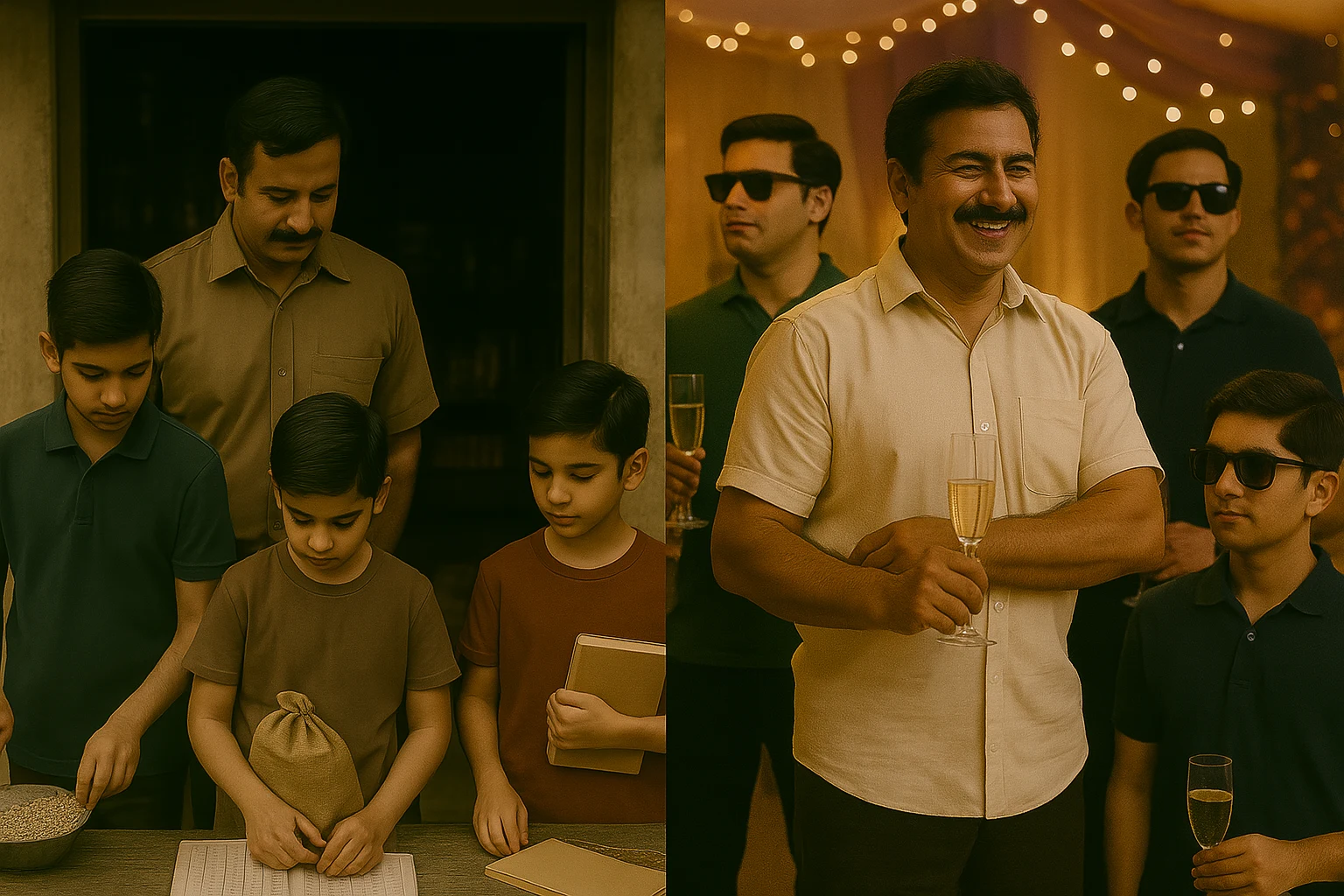
Crossroads of Fate
By the time both families reached their 50s, the contrast had become too obvious for even Jaipur’s gossip-hungry aunties to ignore.
Raghunath had bought two plots in Mansarovar and a commercial unit in Vaishali Nagar—all from the disciplined savings of a man who never skipped his morning tea or his monthly FD deposit. His sons, well-educated from reputed universities, were now working in MNCs in Bangalore and Pune. They invested in stocks, paid EMIs without fail, and called their father every Sunday to discuss SIPs and mutual funds.
Dilip? Well, the parties had stopped. The contracts were drying up like the lakes of Rajasthan. Corruption crackdowns, competition, and his declining health made him a ghost of the roaring lion he once was. Vicky had dropped out of college to “start a venture” that folded in three months. Lucky spent most of his time watching reels and editing his gym selfies. Rocky claimed he was “manifesting success” and had even printed visiting cards that said “Visionary Entrepreneur,” though no one knew what he did.
“Papa, can we sell the old Haveli in Jhotwara? We need money for Lucky’s motorbike EMI,” Vicky asked one evening.
Dilip looked up from his blood pressure report and sighed. The Haveli, built by his grandfather with sweat and bricks, was now their lifeboat.

A Visit Full of Irony
One afternoon, with a plastic file full of medical bills, Dilip hesitantly visited Raghunath’s shop. The old wooden fan creaked above as Raghunath calculated wholesale margins.
“Bhai,” Dilip said, trying to sound cheerful, “Long time, huh?”
Raghunath looked up, his eyes kind but steady. “Come, sit. What’s troubling you?”
“Just… a bit of a tight situation. Was wondering if you could… help me sell off the ancestral land in your area. You know more people in the real estate circle.”
Raghunath didn’t flinch. “I can ask around. But Dilip, what happened to all your earnings?”
Dilip gave a weak smile. “Life happened, bhai. Life happened.”
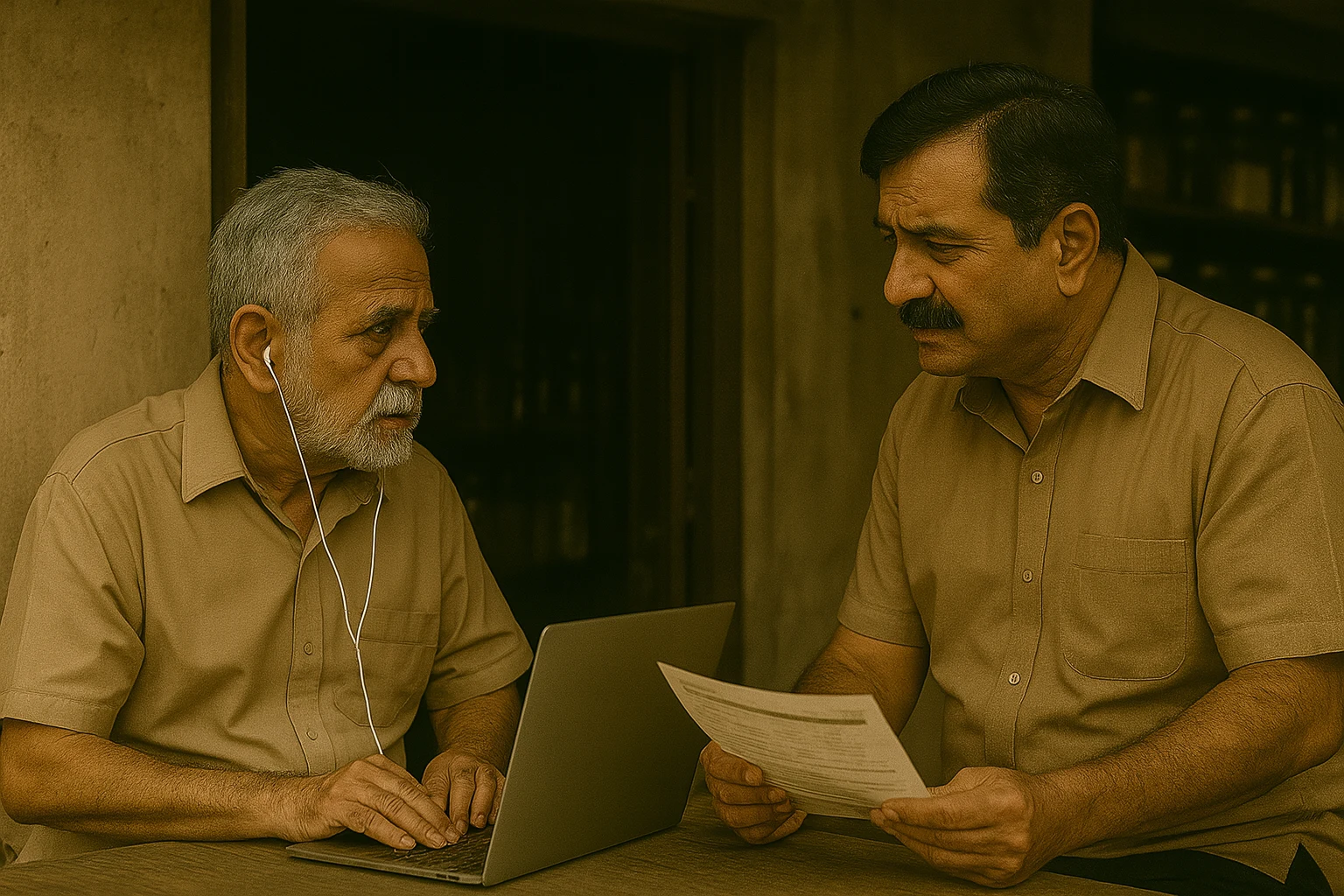
Flashbacks and Realizations
That night, Raghunath sat with his sons on a video call. “Bapu,” said Rajat, “you always told us—earn, but don’t flaunt. Spend, but don’t waste. Dilip chacha didn’t listen.”
“I feel bad for his sons,” added Suresh, “They had all the resources, but no direction.”
“I hope we can help, at least emotionally,” said Amit.
Raghunath nodded. “They laughed at our simplicity, our cycle rides, and home-cooked meals. But now they know—it wasn’t poverty, it was wisdom.”
The Last Deal
Eventually, Dilip sold the Haveli. The price was lower than expected, thanks to legal complications he never resolved. The money was enough to cover his treatment for a few years and support his sons, who were now trying to find jobs with fake resumes and inflated egos.
Meanwhile, Raghunath’s sons had pooled money to buy an apartment for their parents in a gated society. Raghunath had retired from the shop but still visited daily—half to help the new manager, half to escape his wife’s loud bhajan cassettes.
One day, Vicky stood outside the grocery shop, unsure of what to say.
“Chai?” Raghunath offered.
“Uncle, I want to work. I want to learn. Like your sons did.”
Raghunath smiled. “It’s never too late to change. But you’ll have to start from zero—with humility.”

Moral of the Story:
Wisdom outlives wealth. Pride burns faster than a matchstick, but discipline glows like a diya through the darkest nights.
Receive Stories and Articles in your Inbox!
We won’t send any promotional or spam emails.
